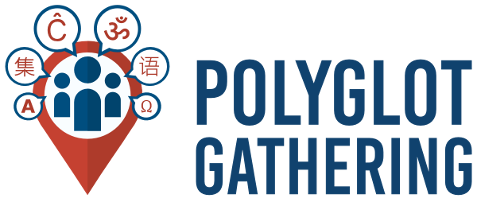Program
The program is still being prepared. In the meantime, you can have a look at last year’s program to find out what you can expect.
| Wednesday, May 15 | Thursday, May 16 | Friday, May 17 | Saturday, May 18 | Sunday, May 19 |
|---|---|---|---|---|
| Talks and workshops | Talks and workshops | Talks and workshops | Talks and workshops | |
| Lunch | Lunch | Lunch | Lunch | |
| Registration, games | Talks and workshops | Talks and workshops | Talks and workshops | Talks and workshops |
| Dinner | Dinner | Dinner | Dinner | |
| Evening program | Evening program | Evening program | Evening program | Goodbye evening |
Talks
The program is still being prepared, but here are some of the talks and workshops you can look forward to. This list is not complete and will be regularly updated.
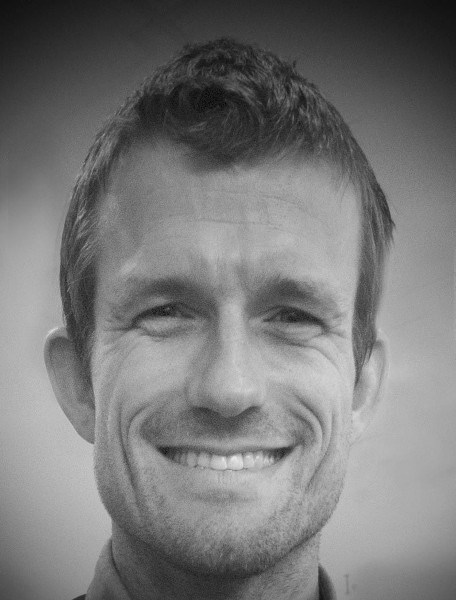
7 games you can play in your new language from day 1
Language: Multilingual
Games are a perfect way to start communicating with native speakers. You will learn 7 + 7 games you can enjoy playing with them from day 1.
We will kick off with the games, which serve as great conversation-starters and which do make your polyglot language skills shine. Next, we will sample a few small talk games. Eventually, we will dive into big games, one of which will be brand new, especially created for 2024 Polyglot Gathering in Prague.
We will be using Czech playing cards with numbers and pictures. We will be playing in groups, in 10+ languages. Come and join us for the hands-on workshop, where we will be playing the whole time!
Petr Hedbavny
Petr Hedbavny is a university teacher of economics and a co-author of Imaglee educational cards. He draws inspiration from encounters with people on five continents, from experiential learning, from improvisational theater and from aikido. He helps people to recognize, develop and fully utilize their creative potential. He loves languages.
A Comparative Introduction to አማርኛ
Language: English
Well, you’re attending a polyglot gathering, so I’d guess you’re vaguely aware that the Arabic and Hebrew languages are related. You might have even heard of Amharic, and know that it also belongs to the same family. But just how similar is Amharic to its Middle Eastern cousins, really?
As an intermediate Arabic and Hebrew learner who has also been studying Amharic (very slowly) for the past few years, I have plenty of thoughts on this subject that I’d love to share.
In this talk, we’ll look at the fundamentals of Amharic writing, vocabulary and grammar from the perspective of comparative Semitic linguistics. In addition to numerous comparisons with Arabic and Hebrew, we’ll also touch on Syriac, South Arabian languages, Tigrinya and Ge’ez, and the long history of cultural and linguistic exchange between the Horn of Africa and the Near East. ለጤናችን!
Kevin Fei Sun
Kevin Fei Sun (孙恺文) is a language enthusiast from New York and Shanghai, currently based in Los Angeles. After prior stints as a software developer and journalist, he now works as a data engineer in the field of large language model research. He has previously given talks on Shanghainese, Uyghur, Indo-Aryan languages, Surinamese Creole, and artificial intelligence.
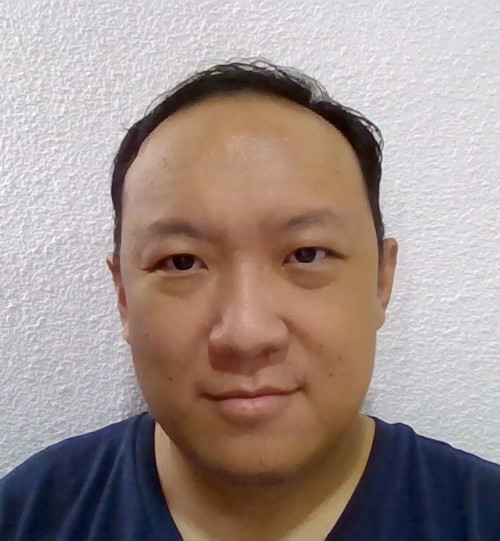
A Comparison of the Phonology and Grammar of Five Austronesian Languages: Malagasy, Malay, Tagalog, Chamorro and Palauan
Language: English
Join Brian as he explores the world's most geographically widespread language family (well, at least before Europeans settled the Americas, Australia, New Zealand and South Africa!). The ancient speakers of this far-flung family had settled a vast region stretching from Madagascar off the coast of Southeast Africa to Easter Island not far from South America. And they did this without the compass and any kind of modern technology. Let's explore the similarities and differences between five different languages from this family with some of the core vocabulary being almost identical between languages spoken across huge distances.
Brian Loo Soon Hua
Brian is a native speaker of Penang Hokkien from Georgetown, Malaysia. He is a linguist currently working on projects involving Aboriginal languages from Australia. He is extremely fascinated by languages with complex phonologies and has studied North American languages like Navajo, Halkomelem and Nootka extensively. He co-organised the Penang Language Event in 2023 together with Richard Simcott and is very keen to organise more polyglot and language events in his hometown.
A Crash Course on ᠮᠠᠨᠵᡠ ᡤᡳᠰᡠᠨ Manchu, China's Former National Language
Language: English
Manju gisun, known as “Manchu” in English, was the national language (國語) of the Qing Empire that ruled China from the mid-17th century to 1912. It belongs to the Tungustic language family with a grammar similar to that of Turkic, Mongolic, Korean, and Japanese. The Manchus used to be called “Jurchen” and originated from Northeastern Siberia. Although Manchu was an official language of Qing China, the Manchus never imposed their language on the peoples they ruled over and assimilated gradually into the dominant Chinese culture. As a result, by the end of their imperial rule, even the royal family had lost fluency in Manchu. Today, Manchu is a critically endangered language with only a handful of native speakers, but is fortunately witnessing a revival among ethnic Manchus enthusiastic about their old mother tongue.
This crash course will teach you the basic (very logical) grammatical structure of Manchu with useful phrases to talk about yourself and getting to know others with. You will also get to learn the basics of Manchu writing – if time allows – which is almost the same as the Mongolian script.
Iskandar Ding
Iskandar Ding is a PhD student in Iranian linguistics at SOAS University of London. His research focuses on documenting Yaghnobi - an endangered Iranian language spoken in Tajikistan. He also looks at the interaction between Iranian and Turkic families of languages and is particularly passionate about common words and phrases in languages and cultures across Eurasia.
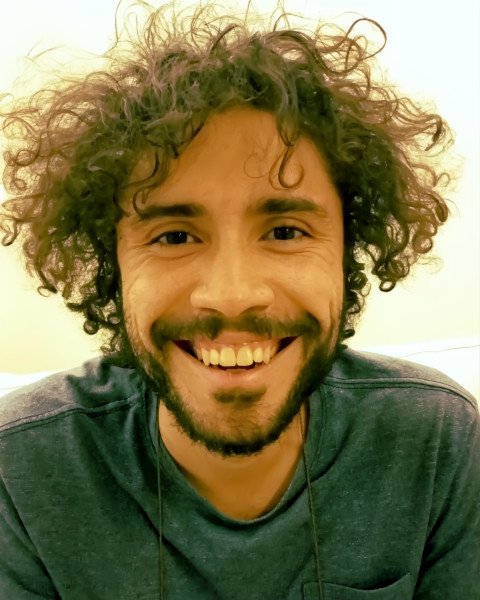
A ginga da Capoeira
Language: Portuguese
45 minutos são o suficiente para aprender o bàsico da Ginga da capoeira. Seu fundamento. Que é a base para desenvolver todo o resto dela. Acrobacias, golpes etc.
Georgos Jurobola
Jurobola has been a hitchhiker for years in search of knowledge and dedication to polyglot group formation. He did it for five years in South America and created more than 20 polyglot clubs. Co-created the Clube Poliglota Brasil and Club Políglota Américas, aiming to deliver the opportunity of polyglot practices to all regions and classes. These interactions, connected with various polyglot movements, ended up catalyzing new organizations such as the Poliglotar conference, etc.
Now he is hitchhiking Europe, Africa, and Asia. What about the new adventures and discoveries?
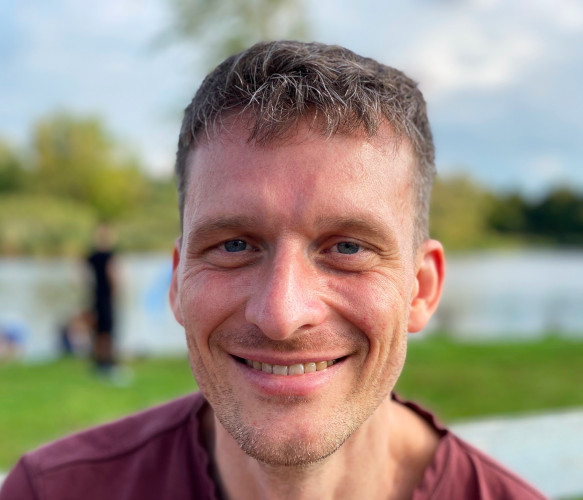
A survival guide to German grammar
Language: English
Have your German teachers tortured you with Dativ and Akkusativ endings? Are you still having nightmares about separable verbs? In this talk we’ll discuss an approach that makes German grammar a bit easier to digest.
This is relevant for you whether you are struggling with German grammar yourself, or whether you are teaching German.
Werner Skalla
Werner is a publisher of story-based language learning textbooks and online courses. He is fluent in five languages (German, Norwegian, English, French, and Czech).
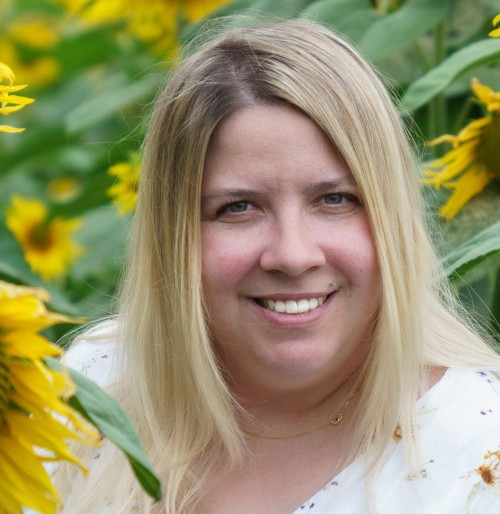
Acquiring Ukrainian
Language: English
Discover the magic of Ukrainian language and culture at our “Acquiring Ukrainian” workshop! Join for interactive activities, including games, stories, and even singing, all tailored to emulate the way children naturally acquire language. This workshop offers a supportive environment where you can learn and have fun simultaneously.
Whether you’re starting from scratch or have already begun your Ukrainian journey, there’s something for everyone! No matter your level, the workshop will meet you where you are and guide you to the next level of proficiency.
The only requirement – bring your curiosity and enthusiasm!
Marta Melnyk
Marta Melnyk is a polyglot and language enthusiast. As a native Ukrainian speaker, she also communicates in English, German, and Polish. In her free time, she shares linguistic expertise by teaching German. Currently expanding horizons, she is learning Greek, Portuguese, Hindi, and occasionally some Spanish and French. Marta enjoys conducting workshops to inspire others to explore the linguistic and cultural richness that Ukrainian language offers.
Akelarre – Do you want to sing with the Basque witches?
Language: Basque and English
In the Basque Country, as in Prague, there is a long tradition of witchcraft. In today’s workshop we are going to listen to witch stories!
All this will be an excuse to play with an ancient language, Euskera. Its origin is lost in the mists of time, and we can see how myths and legends also arise linked to language.
We will also take the opportunity to talk about cultural aspects linked to this idea of witchcraft, such as their headdresses with phallic shapes.
With all this we build the identity of a culture and thanks to this, even though it is a minorized language today, it remains alive!
If you have not yet fled the room, horrified, we will take advantage of the fact that we are already experts in Basque to be able to sing the witches’ songs. You dare?
Iñaki Santos DPB
Musician, actor and performer. Teacher and museum guide in San Sebastian. Content creator talking about art and culture. And yes, he likes playing with the audience!

An Introduction to Penang Hokkien: A Unique Language of the Chinese Diaspora in Southeast Asia
Language: English
The Penang Hokkien language spoken in Penang in Malaysia, as well as in neighbouring parts of Northern Malaysia. A very similar dialect is spoken in Medan and neighbouring parts of North Sumatra. Penang Hokkien developed in the late 18th and early 19th Century from an archaic form of Zhangzhou Minnan brought to the Malay Peninsula by migrants from Southern Fujian Province, China. It is to a certain extent, mutually intelligible with Taiwanese Minnan as well as with the prestige dialect of Xiamen, China. Penang Hokkien retains archaic vocabulary rarely used in China and Taiwan plus a large amount of Malay and English loanwords.
Brian Loo Soon Hua
Brian is a native speaker of Penang Hokkien from Georgetown, Malaysia. He is a linguist currently working on projects involving Aboriginal languages from Australia. He is extremely fascinated by languages with complex phonologies and has studied North American languages like Navajo, Halkomelem and Nootka extensively. He co-organised the Penang Language Event in 2023 together with Richard Simcott and is very keen to organise more polyglot and language events in his hometown.
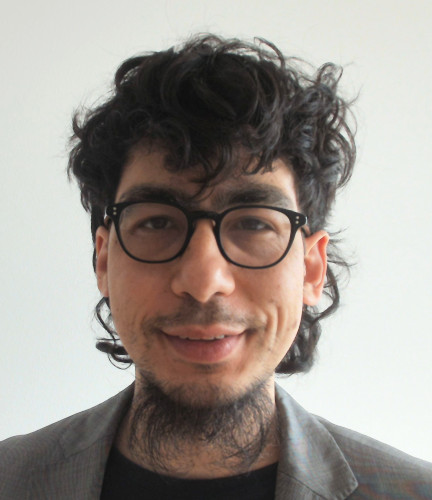
Apprentissage d’accents : faisons comme les acteurs
Language: French
Depuis ma jeunesse j’apprends les accents en utilisant les cours de Dr David Alan Stern, basés sur sa théorie du centre de résonance. Nous allons suivre son cours Acting with a French Accent (en anglais) pour apprendre comment parler anglais avec un accent français. Après, nous allons pratiquer l’accent en anglais, en français, et en autre langues peut-être.
Ever since I was young, I have studied accents with Dr David Alan Stern’s courses, based on his theory of center of resonance. First we will follow his course Acting with a French Accent (in English), to learn how to speak English with a French accent. Afterwards, we will practice the accent in English, French, and maybe other languages.
Fischers Fritz
Fischers Fritz comes from Potsdam, where he works as a cleaner for a mail service. He is not very good at languages, but his pronunciation is decent, so people sometimes think he is good at languages. His other hobby is restoring vintage wedding dresses. His favorite vegetable is red cabbage.
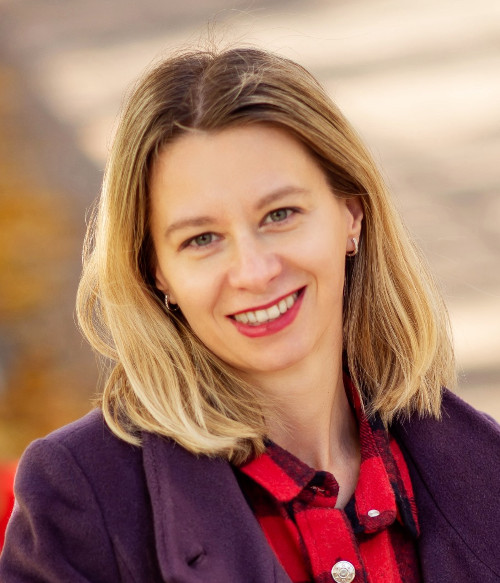
Back to ourselves: rebirth of Ukrainian as a way to embrace national identity
Historically, Ukraine has been a linguistic paradox for quite a while. For many Ukrainians Russian is a native language, although most people in the country are bilingual. But where does this history begin and end? After the start of the full-scale invasion, Ukraine started to experience a “generation shift” as more and more people are switching to Ukrainian and young people are choosing it as a language in which they want to raise their kids.
The talk will focus on the changes happening in the modern Ukrainian language, especially those prompted by the war. Among them: bringing back the original Ukrainian words purposely removed during the Soviet era, using feminine forms for professions etc., spelling modifications, neologisms and slang. We will also touch upon the means of further language purification suggested by modern linguists. At the end, the speaker will give recommendations for Ukrainian books and films useful to those interested in the modern Ukrainian culture or willing to increase their Ukrainian vocabulary.
Victoria Burbelo
Victoria Burbelo is an ESL teacher with 25 years of experience from Dnipro, Ukraine. During her career, she was a language school owner, copywriter, interpreter, and a manager of an international localization conference “UTICamp”. In March 2022, she had to relocate to the Czech Republic with her two children and is now working as a full-time teacher of English at Gymnázium Nad Štolou in Prague. Victoria writes poetry in English, Russian, and Ukrainian. Being a linguist at heart, she got interested in the processes taking place in modern Ukrainian and would like to share her discoveries with others.
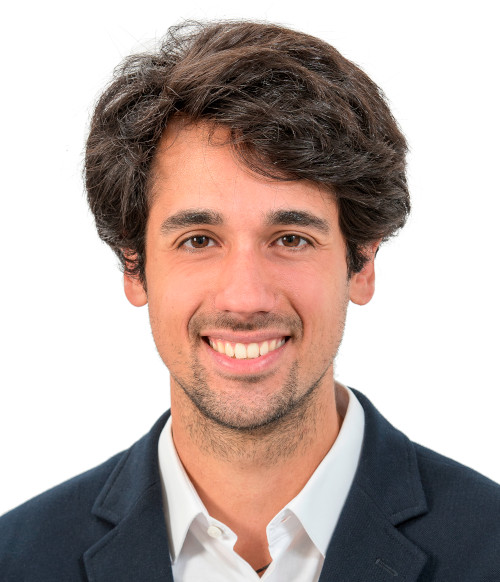
Basque vs Indo-European languages: a linguistic comparison
Language: Spanish
This talk delves into a comprehensive linguistic comparison of Basque with Indo-European languages, shedding light on the distinctive features that set Basque apart. This comparative analysis will offer a deeper understanding of the language’s origins, evolution, and its place within the broader linguistic landscape.
The rarity of the Basque language, unrelated to any known language family, serves as a central theme. Participants will have the opportunity to learn about the implications of linguistic uniqueness for language documentation, minorised and minority languages revitalisation strategies, and the broader implications for the study of language evolution.
Finally, this talks fosters collaboration and knowledge exchange, paving the way for a richer appreciation of the Basque language and its significance in the European linguistic mosaic.
Ángel García Manso
Angel Garcia Manso is a Spanish conference interpreter, translator, and language coach based in Spain. He is particularly passionate about minority and minoritised languages in Spain, with a special enthusiasm for the Basque language, which he has acquired as a second language. Angel has actively participated in various language events, aiming to exchange thoughts on the translation industry and promote the use of minoritised languages.
Brain Computer Interfaces are coming: why we now need to aim for a C3 level of languages proficiency
Language: English
Imagine a world where individuals affected by loss of speech communicate with others solely through their thoughts, bypassing language. Surprised? Is already a reality! Now imagine a world where we could download languages directly into our brains or automatically translate them in our minds. Sounds like science fiction? Think twice!
Thanks to a groundbreaking medical technology (BCIs: Brain Computer Interfaces), this seemingly distant dream might soon become true. BCIs can be easily and safely implanted into your brain through your femoral vessels (aka your groin)! I’ll show you how!! This neurotechnology is here to stay and will transform the human experience of communication.
What are the implications? What does it mean for polyglots? And why should we now aim for a C3 level of languages proficiency. Curious about it? Join me! It will be fun!
Eduardo Alexandre Teiga
Eduardo Alexandre Teiga MD is dual-trained Neuroradiologist and Neuroendovascular Surgeon passionate about BCIs (Brain Computer Interfaces). A polyglot himself (Portuguese native, Spanish C2, Catalan C1, English C1, French C1, German C1, Italian B2, Russian A1, Chinese A1, Arabic A1) he envisions a world where the intersection of neuroscience, engineering, and computer science will enable new therapeutic modalities and enhanced cognitive abilities.
Building bridges through language: Lessons from starting a Polyglot community in Stockholm
Language: English
I attended my first Polyglot gathering in Teresin, (Poland) 2022. What an experience! There, I had the opportunity to connect with fellow language enthusiasts from all over the world, and even with those who (like me) were living in Sweden. Inspired by the atmosphere of the polyglot gathering and our shared passion for languages, we started to meet regularly 3-4 times a year in Stockholm.
This year, fueled by a desire to expand our community, I took the initiative to start a polyglot meetup group in Stockholm…
In this presentation, I will talk about importance of community building in a broader perspective, and in relation to language learning.
Jonatan Haile
Jonatan Haile is a polyglot from Sweden. He speaks 7 languages to various degrees (Swedish, English, Spanish, Hungarian, Russian, Tigrinya and Arabic) and has lived and studied in Granada (Spain) and Pécs (Hungary). He has had previous talks on the Polyglot gathering and polyglot conference. His love for languages is connected to cultural immersion, and he has often found musical artists as the source of inspiration (Silvio Rodriguez, Vladimir Vyssotsky, Cseh Tamás). Jonatan works as a medical doctor and regards the patient interactions the most stimulating and fulfilling part of his job.
Can Tourism Help Save Endangered Languages?
Language: English
In this talk I will explore the complex intersection of tourism and endangered languages, asking the critical question: Can tourism serve as a lifeline for languages on the verge of extinction, or might it do more harm than good?
Drawing on real world examples, from Hawaiian and Mayan to Irish and Saami, I’ll illustrate the implications of tourism on endangered languages, discussing the challenges and opportunities faced by communities striving to protect their linguistic heritage while simultaneously capitalising on tourism. I’ll examine the intricate and often fraught relationship between tourism and cultural preservation, weighing up the positive and negative impacts tourism can have on endangered languages.
Leah Mundy
Leah Mundy is uTalk's Languages Manager and in-house language specialist, overseeing courses for their ever-growing selection of languages. With a background in localisation, she currently works with a wide range of minority languages. Leah is passionate about promoting language learning and preserving linguistic diversity.
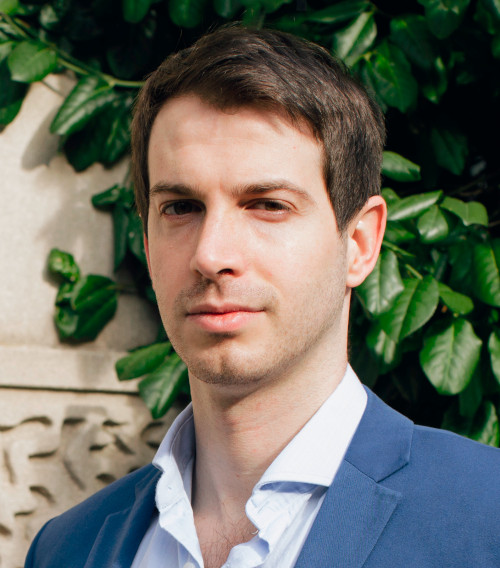
Chavacano: The Final Frontier of Global Spanish
Language: English
If you know some Spanish, you probably think that “Chabacano” is something vulgar, but did you know it is also a common name used for creole linguistic varieties with Spanish as the lexifier and Philippine languages as the adstrates? And why would anyone call these linguistic varieties “vulgar”? Well, that tells us all we need to know about who named it so (surprise, surprise: the Spaniards) and why (to argue that this language is inferior to “proper” Spanish)!
In this presentation, we’ll dive into the history, grammatical structure, and societal impact of Chavacano, shedding light on its colonial roots and modern status. In particular, we will problematize the idea that Chavacano is part of Global Spanish (in the words of LangFocus, whether is “almost Spanish”) delving into two unique linguistic aspects vis-a-vis Spanish, i.e.: 26 discursive particles and a verb-subject-object word order. Do these aspects prove that Chavacano and Spanish are different languages? That Chavacano is not part of The Global Hispanophone? Both? None? Join me as we discuss this issue while analyzing textual and audiovisual samples, highlighting similarities and differences with Spanish and even the influence of indigenous American languages like Nahuatl (!)
Dr. Carlos Yebra Lopez
Dr. Carlos Yebra López (PhD from New York University) is a Postdoctoral Research at University College London, and a Ladino instructor at the Oxford School of Rare Jewish Languages, as well as the CEO of The Hyperpolyglot Activist and Ladino 21. His research focuses on the revitalisation of subalteranized languages of the Global Hispanophone, particularly Ladino (Judezmo, Haketia) and Chavacano. He is the author of ‘Decolonizing Spanish: Ladino and Chavacano as Sites of Global Hispanophonia.’ (TRANSMODERNITY: Journal of Peripheral Cultural Production of the Luso-Hispanic World, 2022)
Comment les techniques d’acteurs induisent des états de flux dans l’apprentissage des langues
Language: French
Lorsque je suis soudainement et inopinément devenu professeur d’anglais en ligne pendant la pandémie, je disposais de très peu de formation conventionnelle sur laquelle m’appuyer. Je n’avais pas de manuels scolaires, je ne comprenais pas comment expliquer le passé parfait continu et je n’avais aucune envie d’enseigner de manière pédagogique.
Des années de travail comme guide touristique à Londres, de participation à des cours d’improvisation pour avoir confiance en moi et mon amour du stand-up, m’ont cependant appris tout ce dont j’avais besoin pour enseigner une langue de manière amusante et engageante. N’ayant rien à perdre, j’ai commencé à utiliser des exercices surréalistes et souvent humoristiques dans mes cours, à la surprise de mes élèves. Les résultats étaient bizarres et très prometteurs.
Je pense que cette approche non conventionnelle a inspiré la fidélité de mes étudiants (le Saint Graal pour les professeurs de langues) et signifie que mon travail ne semble jamais répétitif ou ennuyeux.
Permettez-moi de partager avec vous ceux qui ont donné d’excellents résultats chez mes élèves et ceux qu’il vaut mieux laisser en dehors de la salle de classe…
Freddie Kift
Freddie Kift is a languages improvisation coach with a background in tourism and hospitality. After rediscovering his second mother tongue of French after nearly a decade of neglect he voraciously began to consume content in Portuguese, Russian, Italian and Ukrainian too. After living for periods of time in Lisbon, Kyiv and Aix-en-Provence, he has designed his work and lifestyle around his passion for travel and languages as well as warmer climes that those of his British origins.
Conjugation Challenge: How Fast Can You Learn and Apply Conjugation Rules
Language: Spanish
In this game, participants will be challenged to conjugate verbs from different languages after being presented with the relevant grammar rules. Every round, the rules get harder, and the stakes get higher.
Just kidding, no stakes. This is just a way to have some fun with verbs and testing your ability to learn and apply grammar rules, all while discovering languages you may have never even thought of learning!
Jeremy Buhain
It all started when Jeremy came across an American TV program teaching kids how to speak Spanish. He must've been 12. Or was he 10? Who knows—the age always changes every time he tells the story, but it doesn't matter. From that moment on, he couldn't keep his hands off learning languages. The unfortunate ones he's gotten his dirty little fingers on include Filipino, English, Spanish, French, Italian, Turkish, Mandarin Chinese, Japanese, Russian, and Swahili. Originally from the Philippines, grew up in the US, and now currently living in Spain, Jeremy works as a climate change policy consultant when he's not busy conjugating verbs in his head.
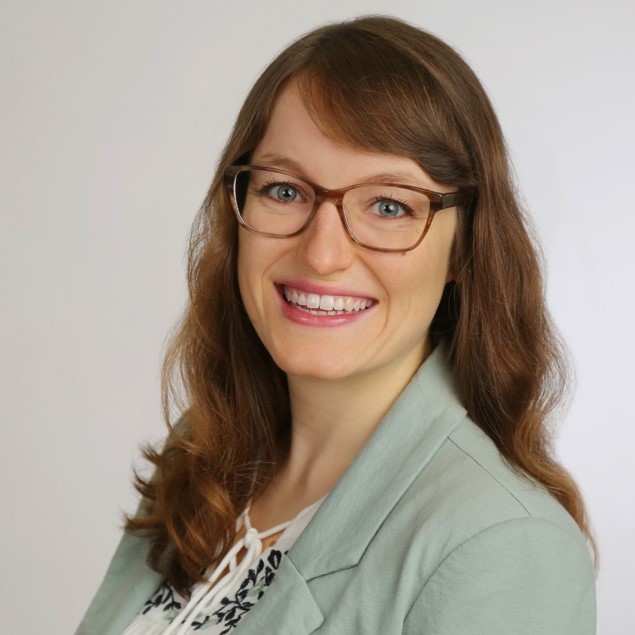
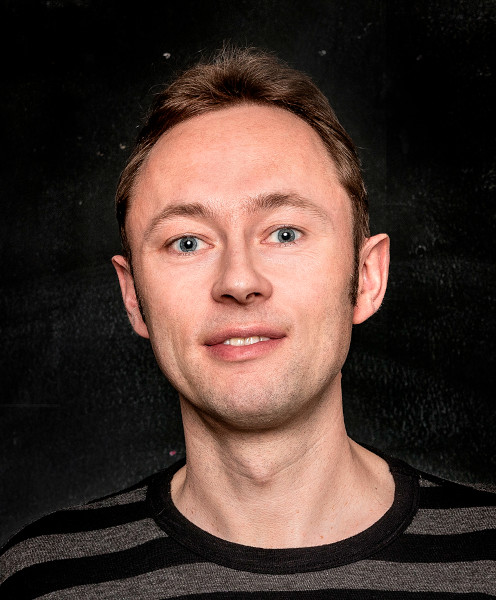
Connecting Cultures Through Language Exchange
Language: English
Tandem is an online language learning community with millions of members from all around the world. Our mission is to connect the world through languages. In times when understanding each other across languages and cultures seems more important than ever, how does building bridges between cultures happen on Tandem? How does interacting with people from different corners of the globe lead to a better understanding of their cultures and worldviews? We will share data and insights from the Tandem community, and talk about the potential of language exchange for a more connected world.
Michelle Kubitza, Tobias Dickmeis
Tobias is the co-founder and Chief Product Officer of the language exchange community Tandem, based in Berlin/Germany. Since launching the Tandem mobile app in 2015, more than 27 million members around the world have joined the community to practice 300 different languages together and learn from each other.
Michelle is responsible at Tandem for organizing and hosting Language Parties and building partnerships with other language learning companies, teachers and influencers. She’s currently very passionate about the potential of using recent technologies like AI and VR for language exchange.
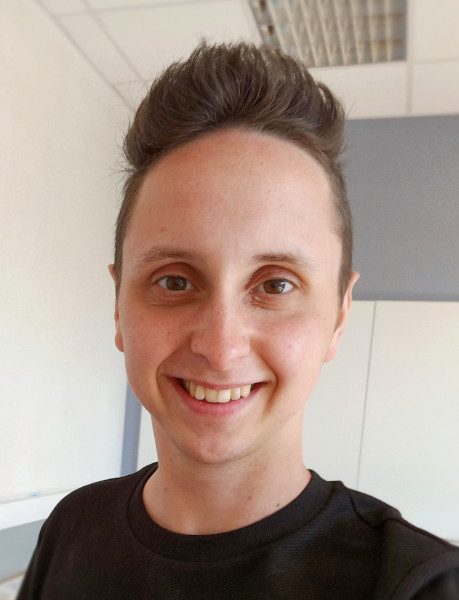
Crash course Dutch
Language: Dutch, English
Considering Dutch as your next language to learn or simply curious how the language ticks? In this workshop I'll teach you the basics of Dutch, touch on a couple of grammar points and end by pointing out some differences between the Dutch language spoken in Flanders and in the Netherlands. You might just find out you already understand more Dutch than you think!
Lander Van Canneyt
Since having obtained master's degrees in translation studies (2021) and in teaching Dutch and German (2022) in Belgium, Lander has been teaching Dutch to both adults and teenagers with another native language, going from beginners to advanced learners.

Cryptography: Encrypting and hiding language
Language: English
During this talk, you will learn about what cryptography is about in general, the many ciphers that are commonly used for encoding and decoding messages, how they work in other languages, as well as the well known ciphers that were used in history (such as the Enigma cipher used during World War II, the Copiale Cipher that comes from a 600-year-old book describing cult activity, the cipher made by the Zodiac killer or the Kryptos statue in the George Bush Center for Intelligence).
Witold Kanafa
Witold is a young language learner. Not only do they like to learn how people communicate with each other, but he also likes to tinker around and experiment with what life has to offer. One of those things is computer science, specifically, cryptography. Witold is also interested in solving logic puzzles from time to time, whether that would be decrypting codes or playing video games that tease their mind.
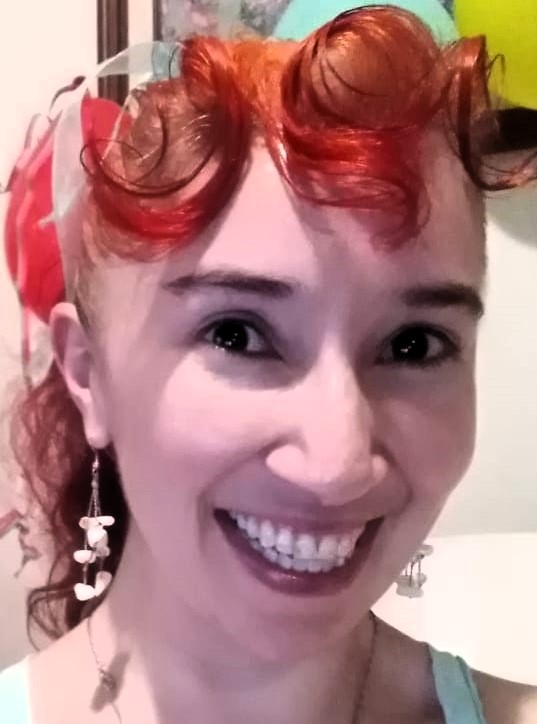
Dance and Sign Language / Danza y Lengua de Señas
Language: English, Spanish and Mexican Sign Language
Not only do we speak with words, we also speak with the body. Even when we silence our feelings, the body expresses our emotions. What is important is not only what we say, but also the way we say it. Therefore, for me, dance is a beautiful and artistic way of communicating, and if we can also do it with our hands with previously established signs, then it becomes “danced poetry.”
No solamente se habla con las palabras, también se habla con el cuerpo. Aún cuando callamos nuestros sentimientos, el cuerpo expresa nuestras emociones. Lo importante no solo es lo que decimos, sino también la forma en que lo decimos. Por ello, para mí, la danza es una hermosa y artística forma de comunicarse, y si podemos también hacerlo con las manos con señas previamente establecidas, entonces se convierte en “poesía bailada”.
Brenda Liliana Ruvalcaba Montoya
Brenda Liliana Ruvalcaba Montoya. Artistic name: Brandy Ruvalcaba.
Mexican. Professional Dancer. Magician-Illusionist. Juggler. Dog Trainer. Polyglot. Creator of “Special Tangotherapy for Patients with Parkinson’s”. Speaker at TEDx: “Tangoterapia, un abrazo de vida.” Choreographer. Gymnast. Nutrition. Evangelist of Korean Culture in Mexico. Sign Language. International Relations.
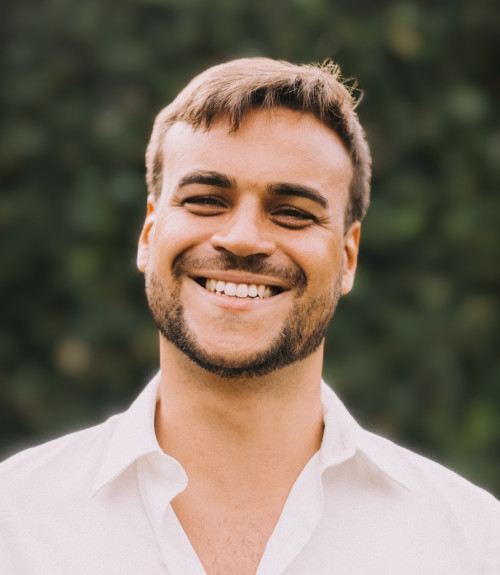
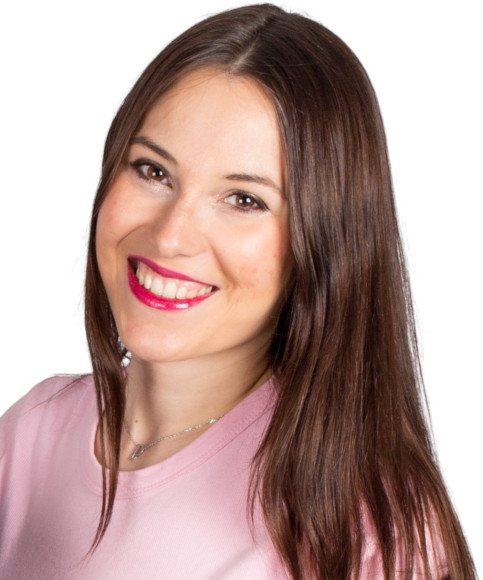
Do You Speak the Language of 2024 Social Media? Crash Marketing Course for Personal Brands and Businesses
Language: English with slides in Spanish and Portuguese
Get ready to take your language-related profile to the next level! Whether you’re managing your personal brand or a business, this session is for you.
We’ll unveil the latest tactics for monetizing social media in 2024 and share some of the best practices in influencer marketing, success stories of user-generated content, and strategies for promoting your services through paid media.
Join us to inspire other like-minded language learners on social media and participate in a fun Kahoot game at the end of the talk!
Gustavo Garcez & Natalia Morales
They are experienced marketing professionals leading the digital marketing efforts at italki for the European region, a leading language learning marketplace. Gustavo comes from Brazil, and Natalia is from Spain. Both share a passion for languages and fostering intercultural connections.
Educated Excuses for Grammatical Errors
Language: German
Can’t just leave away articles and personal pronouns! This is a habit you have to quickly get rid of, along with split infinitives and preposition stranding!
No, seriously… Do you feel guilty for making mistakes in your target language? Do you think you don’t speak your native language right? Are you afraid of losing your face when making grammatical errors? Then this workshop is for you! We will provide you with insights from empirical and theoretical linguistics on why deviations from grammatical rules are good: on the theoretical side, they are just as regular as the rules themselves, and on the empirical side, they are an indicator of linguistic diversity.
Felicitas Andermann & Ronja Sturm
Felicitas Andermann is a PhD student in theoretical linguistics at Leipzig University. Her research interests lie in morphological theories and their predictions and verbal inflection. She has been working mainly on Potawatomi (Algonquian, North America) lately.
Ronja Sturm is a BA student in linguistics at Leipzig University. She is interested in linguistic typology as well as syntactic and morphological theory and likes agglutinative languages.
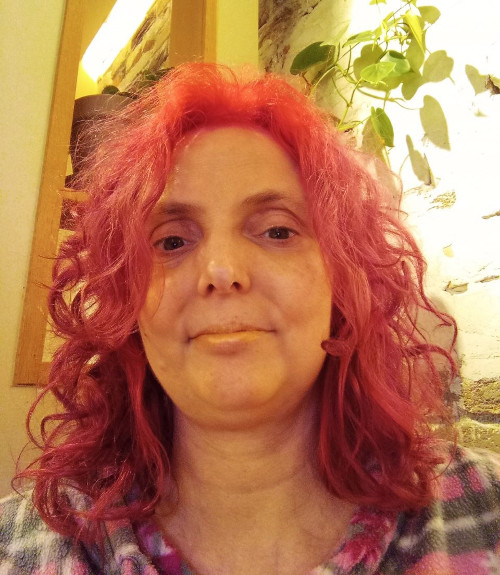
Eeny, meeny, miny, moe - what next language am I to ...?
Language: English
Every polyglot or polyglot-to-be sometimes faces the difficult choice of the next language or languages he or she will focus on, what language version, dialect or the family he should pick up or give up, what should be the next goal and when we are ready to start new challenge. I am not an exception to this rule, i have struggled myself so I would like to search for the solutions together.
Blanka Rzewuska
Hyperpolyglot, teacher, activist and anthropologist. Always learning.
Esperanto quest: decipher the world
Language: Esperanto
Do you like LEGO? If yes, you are going to probably like Esperanto and especially its word-compounding strategy.
Discover the power of prefixes, suffixes, and endings that form the backbone of Esperanto vocabulary, much like building blocks in a LEGO set. In this workshop tailored for beginners, unravel the mysteries behind composed words in Esperanto, akin to solving intricate puzzles. No prior knowledge of Esperanto is required – just bring your curiosity, knowledge of other languages and enthusiasm to explore a language crafted for global communication.
Michael Boris MANDIROLA
Michael-Boris MANDIROLA is the former president of the World Esperanto Youth Organisation and he is still active in several Esperanto organisations, from the local to the international level, as well as in Euro-federalist ones.
He has worked and studied in Piedmont, Wales, Catalonia, Silesia and Occitania; thanks to these experiences and Esperanto activism he developed a particular attention towards language diversity and language rights.
By the way he graduated as a computer engineer from the Polytechnic University of Turin and is working in the aeronautical industry, but that’s less related to human languages.

European microlanguages
Language: English
Have you ever heard of Aranese, Saterfrisian or Vilamovian? There are 60 regional or minority languages listed in the European Charter. Some have only a couple of thousands or hundreds of speakers, some are moribund or successfully revitalized, but all of them are unique and fascinating. Let's take a closer look on a few alive and kicking ones.
Paul Suder
Paul works as a language teacher in Norway. He completed his master's degree in Far East languages with specialization in linguistics at the Jagiellonian University. In Norway he finished university courses of practical pedagogical education in Japanese, as well as courses of the Spanish and German language and literature. He's addicted to learning and exploring new languages.
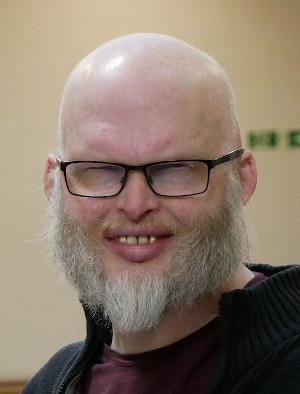
Failing to Fail
Language: English
The biggest fear we have is failing, so let's dive into the topic and see what it means and what the consequences are of looking failure in the face and fail at it.
Richard Simcott
Richard Simcott is a British polyglot, who has studied over 50 languages. HarperCollins described him as one of the most multilingual people in the United Kingdom, and the Goethe Institute gave him the title Ambassador for Multilingualism.
He has many years of consulting experience using languages with diverse clients and offering his expertise on multilingual and multinational projects.
He is the original founder of the Polyglot Conference and The Language Event and manages a popular Facebook page called Speaking Fluently.
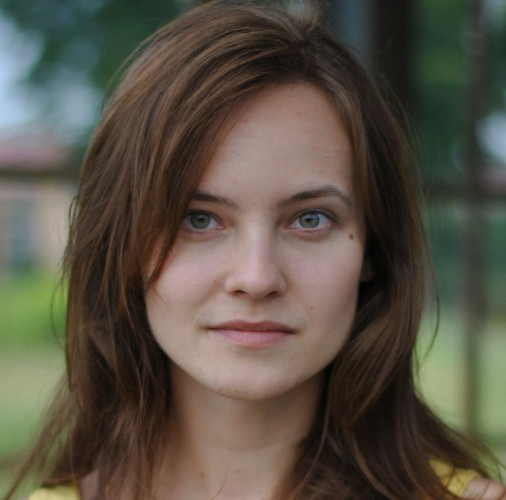
First step to Finnish
Language: English
Do you wanna get to know the language which inspired Tolkien? This session is designed for absolute beginners who don’t have any experience of learning Finnish - a language which is certainly different from many others you may have studied so far. Finnish is not the easiest, but it is not exceptionally difficult. Come along and you will quickly understand why!
Adrianna Plaga
Adrianna is a polyglot, translator and language teacher based in Helsinki, Finland. She speaks Polish, English, Finnish, Russian, German and Spanish at different levels and a couple more languages in progress. As a language teacher she wanna encourage her students to start speaking their target language from the very first lesson. She also pass on knowledge about culture, traditions and slang.
In her spare time (besides learning/teaching languages) she reads books (she likes books of R. Kapuściński, P. Auster, H.Murakami), she’s a huge cinema lover, she plays computer games (usually RPG ones), occasionally she does some yoga, kayaking and biking.

História do movimento poliglota no Brasil e América do Sul
Language: Portuguese
O Brasil, assim como qualquer país das Américas, é multiétnico e multilinguístico, e apesar dos séculos de colonização, escravidão e supressão linguística, ainda tem mais de 180 idiomas nativos, dos mais de 2000 estimados da era pré-colombiana, e mais de 60 estrangeiros usados cotidianamente em seus mais de 5 mil municípios. Até 1850, por exemplo, o tupi era mais falado que o português. Como se deu ao longo dos anos a interação entre os povos, línguas e políticas linguísticas no país e como surgiu e cresceu o movimento poliglota no Brasil, um país hoje majoritariamente monolíngue.
E de que forma isso interage e afeta o movimento poliglota na América do Sul e no Mundo? Como este movimento se relaciona com o resgate de idiomas nativos em risco? Quem foi Carlos do Amaral Freire, já falecido, e como este hiper poliglota inspira novos poliglotas no Brasil e América do Sul? Quais organizações e conferências poliglotas já existem na região?
Georgos Jurobola
Jurobola has been a hitchhiker for years in search of knowledge and dedication to polyglot group formation. He did it for five years in South America and created more than 20 polyglot clubs. Co-created the Clube Poliglota Brasil and Club Políglota Américas, aiming to deliver the opportunity of polyglot practices to all regions and classes. These interactions, connected with various polyglot movements, ended up catalyzing new organizations such as the Poliglotar conference, etc.
Now he is hitchhiking Europe, Africa, and Asia. What about the new adventures and discoveries?
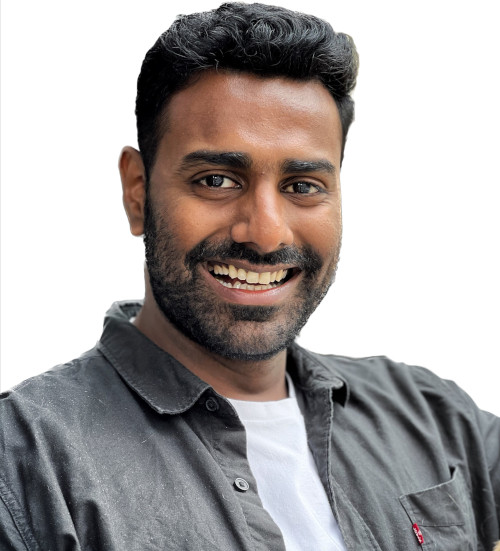
How Multilingualism Unlocked My Dream Job in France
Language: English
In this talk, Josh shares his journey of how mastering multiple languages became the key to unlocking a dream career in France, despite lacking the technical background typically required. Coming from India, Josh faced challenges, including competing with graduates from France's prestigious grandes écoles who don't need to apply for a work permit, bridging significant cultural gaps, and competing without any network of people who knew him. Yet, his fluency in English, French, and several South Indian languages stood out as a unique asset, opening doors in unexpected ways. Josh's story is a testament to the power of languages in connecting cultures, breaking barriers, and creating opportunities in the global job market. This talk will not only inspire you with the transformative potential of multilingualism but also provide practical insights into leveraging language skills for professional advancement, making it a must-see for anyone looking to turn their linguistic abilities into their golden ticket.
Joshua Balata
Josh is an Indian expat living in Paris. He moved to France to study business and eventually found a job in the work of Data. He has a youtube channel where he talks about his job, his journey learning French and his experiences in Europe. He has several events over the year to help Indian interns planning their professional life in France and polishing their French skills. After moving to Europe, many aspects of his homeland start emerging as hobbies. Skills like cooking Indian food, calligraphy and Indian music were new discoveries for a nostalgic fish in a new bowl.
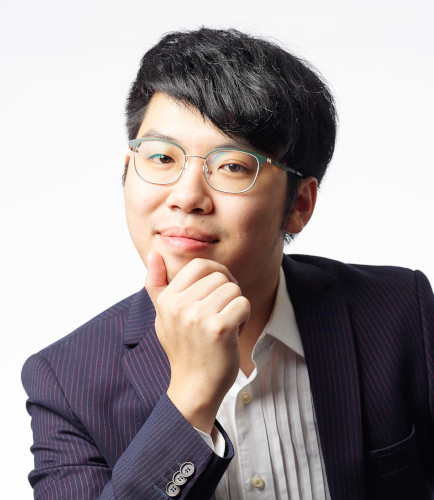
How kinship systems shape your worldview and reality: cross-cultural anecdotes
Language: English
In what situations would you call your mother your aunt? Or your aunt’s son your father? Do you even know your uncle’s name?
What we call our family is something we usually take for granted; after all, we’ve known them our whole lives. But no matter which culture you’re from, when you examine these terms closely, you might realise they can be deeply weird.
You may have heard that Asian cultures tend to have more complex kinship terms, starting from siblings, sorted by age. In fact, even though these systems around the world have been sorted into 6 main categories, there can be a lot of nuance — nuance that can be traced back to the role of family in society, and the role of the individual in the family.
But did you know that these systems not only reflect and shape familial culture, but have far-reaching effects on our daily lives? Even beyond the family, the way we perceive other people and talk about them can differ greatly between cultures.
As a Cantonese-speaking person living in an anglophone world, I have frequently noticed these incongruences in my day-to-day social interactions. Come tag along on my journey of self-discovery, exploring the question: who am I to people?
Israel Lai
Israel Lai is a composer by day and a language learner by night. He discovered his passion for languages when he first taught himself German on his own, ten years ago. Amid lockdown, he created the language-linguistics podcast 絮言.狂想, discussing language topics closer to Cantonese listeners and creating listening materials for Cantonese learners. He also runs the YouTube channel Rhapsody in Lingo, creating multilingual videos about his language learning and life abroad. Israel is currently pursuing a PhD in Composition at the University of Manchester, focusing on space and urban landscapes. He is also a stenography learner.
How to Design Your Own Writing System
Language: English
I will be explaining the steps of designing your own writing system for any language. Some people have tried to use a writing system made for one language for another, or created a new writing system for their language. This talk lists the steps required for this and walks the audience through designing a new writing system from scratch. Any language can be used. Samples of writing systems already created will also be available.
Enoch Stokes
Enoch is a student of writing systems and languages. He became fascinated by possible ways to fix English spelling when he was ten years old. He designed a writing system for English that was fully phonetic but does not know where that piece of paper is. Last year, when trying to learn Russian, he decided to revive this old hobby by adapting the Cyrillic Alphabet to write English. This caught his fancy and he has since designed many writing systems for English and is now working on a universal alphabet.
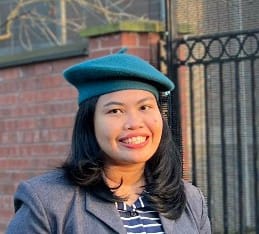
How to Master Language Acquisition as a Procrastinator: Turning Laziness into Productive Procrastination through Comprehensible Input
Language: English
Are you a master procrastinator? Does the thought of learning a new language excite you until you remember how much effort it seems to require? What if I told you that procrastination and perceived laziness could be your greatest assets in mastering new languages? In this innovative talk, we delve into the art of learning languages for those who prefer the path of least resistance. Drawing from the groundbreaking research of linguist Stephen Krashen and my personal experience from my own language learning journey — as someone who thrives on procrastination and self-identified laziness — I will unveil how to transform your language acquisition process into an enjoyable form of productive procrastination. Discover the way to absorb new languages without drudgery, leveraging comprehensible input to make language acquisition not just accessible but irresistibly fun. Say goodbye to traditional, strenuous methods and hello to a world where language acquisition aligns with your most laid-back self. This session aims to not only redefine your approach to acquiring new languages but also to celebrate the procrastinator in you.
Kirana Aisyah
Kirana Aisyah is pursuing an MSc in Digital Development at The University of Manchester. The Indonesian government has awarded her a fully-funded scholarship. She is a language enthusiast with three years of experience teaching English and Indonesian. She speaks English fluently, has an intermediate level in French, and is just starting to learn Spanish. She is a master procrastinator with a low level of conscientiousness, but she has managed to learn languages nonetheless.
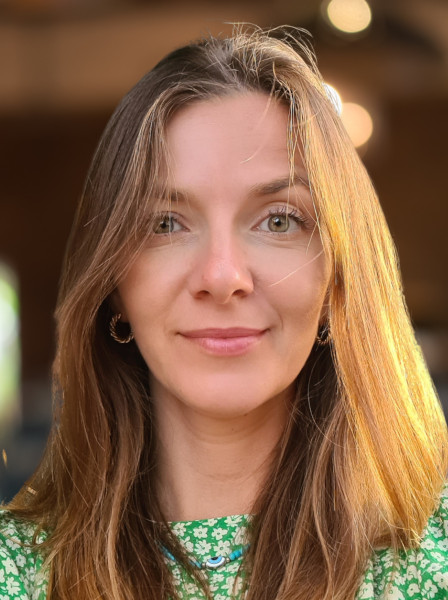
How to feel like local in Istanbul: useful phrases and gestures in Turkish
Language: English/Turkish
Have you started your Turkish language adventure yet? A little cultural awareness and some attention-grabbing language will undoubtedly come in handy even if you have. My session will help you navigate the Grand Bazaar, order food at "lokantas", strike up conversations with local business owners, commonly known as the “esnaf”, ask for directions, and avoid scammers targeting tourists. This session will help interpret non-verbal cues, respond to basic questions like a Turk, and think like an “Istanbulite” through role-playing games that simulate everyday scenarios. Prepare yourself for a few memorable phrases that will help you blend in to the bustling streets of a Turkish megacity.
Asya Cariuk
Born in a small Belarusian town, Anastazja speaks multiple languages. She moved to Poland, the home of her grandparents, when she was 16, and after finishing her education, she set out on a lifetime travel journey. She was able to live and learn languages through immersion as she lived in eight different countries, ranging from China to the Middle East and Ireland. Turkey is one of her favourite destinations, as it is where she has developed her ability to fit in with the locals. She enjoys showing people Istanbul, which she believes is the greatest city on Earth.
How we created the Interslavic zonal constructed language.
Language: Interslavic
Vojtěch Merunka
Idiolects, Prescriptivism and How to Make a Foreign Language Your Own
Language: English
Even if we speak the same language, we all speak it slightly differently, influenced by our own life experiences and the connections we have with those around us. But when we learn a second (or whatever number) language, we’re often met with something much more standardised than we’re used to.
How can you reflect your personality when you only know a handful of words? Is there any point to learning the ’standard’ form of a language? What makes up an idiolect, anyway?
Join me to discover potential answers to these questions, and reflect on the way you speak and what it says about how you interact with the world.
Charlotte Donnelly
Charlotte is uTalk’s Marketing Manager and a general language enthusiast. She has been interested in languages for as long as she can remember and is fascinated by the way small things can connect us with other people. She also likes writing—in any language!—and learning interesting language facts.
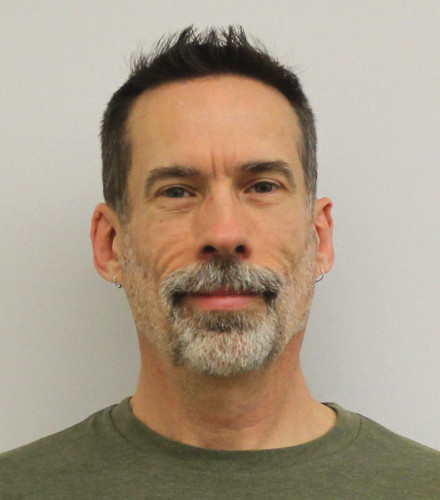
If you speak Spanish and French (and a bit of Italian), you can easily learn Catalan
Language: Catalan, French, Spanish, English
In this talk we will talk about the Catalan language, and the similarities and differences between Catalan, Spanish and French. We will analyze the vocabulary and grammar and highlight the aspects that will help you quickly become a Catalan speaker. We will play games with Catalan, French and Spanish vocabulary. This talk will be in Catalan, French, Spanish and English.
Jeffrey Micher, Marta Capdevila
Jeffrey Micher is a linguist and polyglot, with an MA in Linguistics (University of Pittsburgh) and an MS in Language Technologies (Carnegie Mellon University). He has taught ESL in the US and in France, and French in the US. He has worked in the field of Augmentative and Alternative Communication, and he has done research in Applied Linguistics and Machine Translation. His languages are English, French, German, Italian, Spanish, Slovak, Catalan, and Manx.
Marta Capdevila Vinaja is a native speaker of Catalan and an English instructor in Catalonia. She is pursuing a Master’s degree in Applied Linguistics. Her languages are Catalan, Spanish, English, and French.
Innovative technique to boost our motivation to achieve a language goal with AlterEgo images when we explore our goal.
Language: Russian
Vivid visualizing of the achievement of one's goal kinesthetically, emotionally, visually, and auditorily, and seeing the image of a new self and our happiness in this picture, is one of the most powerful accelerators in language learning. This helps us synchronize different parts of our personality with our goal and progress towards it in harmony, without wasting energy on internal conflicts between our mind, soul, body, and other components of ourselves. When our path to a goal in a certain language seems too difficult, leading to procrastination, it signals that not all parts of our personality are aligned to achieve this goal. However, we can fix this by conducting a deep exploration and incorporating associative images into this process. Anna Bakova will share a tool that she has developed in partnership with outstanding psychologists and coaches, and has extensive experience in applying it with language learners and for herself.
Anna Bakova
Anna Bakova is a Professional Coach & Coaching Supervisor ICF (International Coaching Federation), an Innovator in Efficient Language Learning, a Polyglot ( 9+ languages), and a Play Technology Master conducting transformational games that blend coaching, psychology, art, and play technology. In 2019, she founded the Language Coaching Academy, which offers ICF professional language coaching education to teachers and language enthusiasts. Anna is passionate about languages and professional coaching. She is based in Prague.
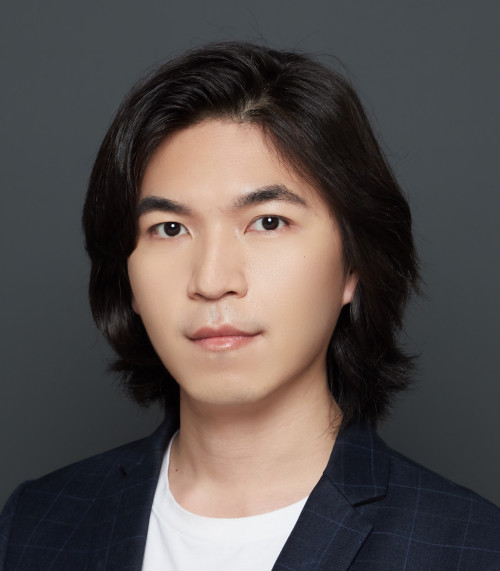
Introduction to Burmese language and culture / 深入探索緬甸的語言和豐富的文化
Language: English
Discover Myanmar’s culture and language in this fun 45-minute workshop. Learn basic Burmese words, how to say them, and write them. We’ll look at the culture, traditions, and daily life that influence the language. Through interactive activities, you’ll enjoy and remember your learning, seeing the beauty and depth of Burmese. This workshop is great for those who love languages and exploring cultures, giving a special look at how language and culture come together.
Chen Chi Ming
Chi-Ming is from Yangon, Myanmar, now living in Taiwan. He studied Russian at the University of Foreign Languages in Yangon and is furthering his education in Communication at National Chengchi University in Taipei. He is also learning German at the Goethe-Institut in Taipei.
He teaches Burmese at Soochow University, and Chinese at both the German Institute Taipei and LTL Language School (Taiwan). He works as a Burmese editor at Radio Taiwan International, where he creates content that connects different cultures. During the difficult times of the 2021 Myanmar Coup, he spoke out for freedom and human rights on Taiwanese TV and radio. He also works as a translator and interpreter for various Taiwanese government agencies, such as the National Immigration Agency and police offices, helping to solve communication problems in critical situations.
He often speaks as a guest at institutions like the University of Taipei and Taipei Municipal Chien Kuo High School. He also leads the board that sets exams for Burmese language civil service tests, demonstrating his deep knowledge and commitment to language education. He is looking forward to working on a project to evaluate media development in Myanmar. His proficiency in Burmese, Chinese, English, Japanese, Russian, and the Yunnan dialect makes him a key figure in improving understanding and communication between cultures.
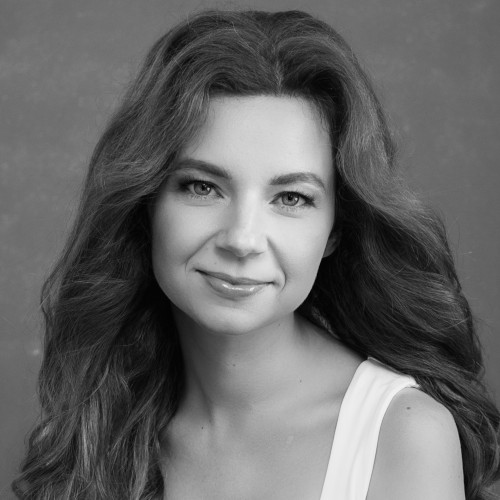
Introduction to Maya Kaqchikel
Language: English
Join me on a fast-paced trip through one of Guatemala’s biggest Mayan languages – Kaqchikel. Discover where and by whom it is spoken, unravel the particularities of its pronunciation (ejective consonants!), get familiar with its pronouns, learn how to count, possess nouns, and see for yourself how surprisingly easy it is to form verbs in past, present and future tenses. Last but not least, I will also show you how to use the ergative case! All of it in English as the majority of the resources are available to Spanish speakers only. There will be short exercises to put the theory into practice.
Małgorzata Quiñonez
Małgorzata (who prefers to go by Gosia) believes that the most beautiful aspect of the world is its linguistic diversity. As a native Polish speaker her heart goes up when she hears consonant clusters which include sounds she can’t yet pronounce. Apart from Polish, she also speaks English, Spanish, Dutch, better German than she thinks and far worse French than she remembered. She currently works as a mother to a bilingual boy, translator, interpreter and teaches conference interpreting at the University of Warsaw.
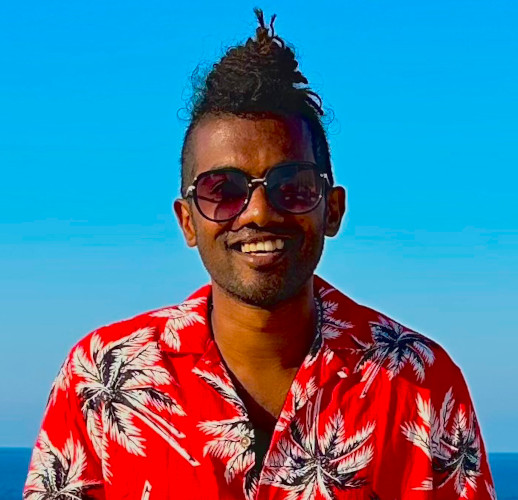
Juggling 101 in French
Language: French
Come learn juggling with the workshop ’Juggling 101 in French’! In this relaxed and supportive environment, you’ll learn the basics of juggling while immersing yourself in the beauty of the French language. Join us for a fun-filled session where you’ll make new friends, laugh, and enjoy the thrill of mastering new skills! Get ready to impress everyone with your juggling talents and create unforgettable memories!
Venez découvrir la jonglerie avec notre atelier ’Jonglerie 101 en français’ ! Rejoignez-nous pour apprendre les bases de cet art amusant tout en plongeant dans la langue française. Que vous soyez débutant ou que vous vouliez améliorer vos compétences, on vous guidera dans une expérience amusante et enrichissante. Rejoignez-nous pour rire, faire de nouveaux amis et relever des défis excitants ! Vous allez impressionner tout le monde !
Prasanna Deshapriya
Prasanna Deshapriya is a polyglot juggling 7 languages at different levels. This time, he will get you started on juggling for real (no pun intended) at the PG 2024. He himself was a beginner a couple of years ago and he learned juggling at the PG 2022 in Teresin, Poland. This time he is back at the PG to share his new passion with all the participants. The event will be conducted in French.
Konferenzdolmetscher – Berichte aus der Praxis
Language: German
Wie arbeiten freiberufliche Konferenzdolmetscher? Oscar Hughes, fast noch Berufsanfänger, arbeitet in mehreren Ländern und bei den EU- Institutionen in Strasburg und Brüssel. Elisabeth Dörrer dolmetscht seit 40 Jahren, 32 davon hauptsächlich bei der EU. Studium, Prüfungen, Sprachen, Alltag in der Kabine, wie bereiten wir uns vor und wie überleben wir den Sitzungsstress?
Elisabeth Dörrer, Oscar Hughes
Elisabeth Dörrer looks back on a complete freelance career, 32 of which at the European Institutions. Aged 66 she has decided to work for at least one more year.
Oscar Hughes, 29, has been working as an interpreter for two years after training in Geneva.
L'espéranto et les autres langues
Language: Esperanto
Kelkaj kredas ke Esperanto celas forigi ĉiujn lingvojn de la mondo… tamen ĝuste esperantistoj organizas la Poliglotkunvenon!
Certe, ĉiu esperantisto lernas la lingvon malsamkiale, tamen oni povas atenti kelkajn poziciojn en diversaj epokoj kaj starigi al si kelkajn demandojn.
Kion imagis Ludoviko Lazaro Zamenhof kreinte la lingvon? Kaj kion diras la plejlastaj LingvoPolitikaj Pozicioj de la Tutmonda Esperantista Junulara Organizo?
Kiel ŝanĝiĝis iuj sintenoj? Kion la organizita movado pensas pri lingva diverseco, lingvaj rajtoj, ktp?
Michael Boris MANDIROLA
Michael-Boris MANDIROLA is the former president of the World Esperanto Youth Organisation and he is still active in several Esperanto organisations, from the local to the international level, as well as in Euro-federalist ones.
He has worked and studied in Piedmont, Wales, Catalonia, Silesia and Occitania; thanks to these experiences and Esperanto activism he developed a particular attention towards language diversity and language rights.
By the way he graduated as a computer engineer from the Polytechnic University of Turin and is working in the aeronautical industry, but that’s less related to human languages.
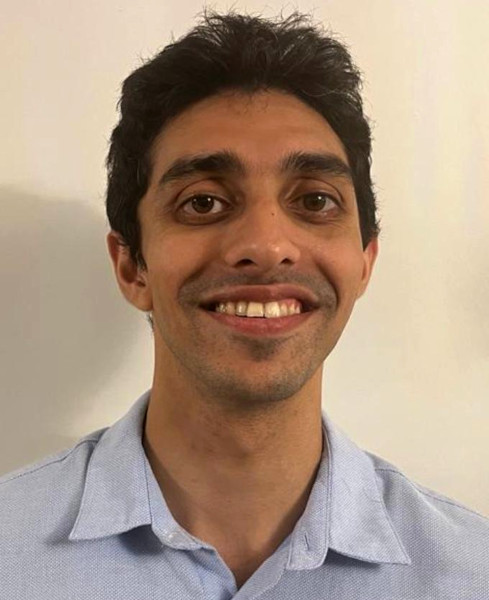
Language Crash Course: Hindi
Language: English
Hindi is a language spoken by around 600 million people worldwide and is the third most spoken language in the world. Despite this, it remains not very widely studied among the (European) multilingual community!
Whether you want to immerse yourself in a country with an extremely rich and varied culture, find out how much Hindi vocabulary comes from other languages such as Persian/Arabic/Turkish or just discover how to pronounce your favourite Indian dishes and connect with a population of over a billion people who, like me, by now inevitably find themselves in all corners of the globe, come along to this Hindi Language Crash Course!
Among other things, we will cover the basics including greetings, introducing yourself, some numbers and fundamental aspects of Hindi grammar!
Dhananjay Talwar
Dhananjay Talwar, also known as DJ, is a huge language enthusiast from London, UK, though his family is originally Indian Punjabi. He has learnt over 20 languages to different levels, and is fluent in at least 9 of these (according to his own judgement). He is a regular at polyglot events and don’t worry, he appreciates any brave attempt to pronounce his full first name even if it’s not dead-on.
He is a private tutor and Director of a private tutoring agency. When not learning languages, he enjoys travelling, discovering foreign cultures and watching and playing a variety of sports.
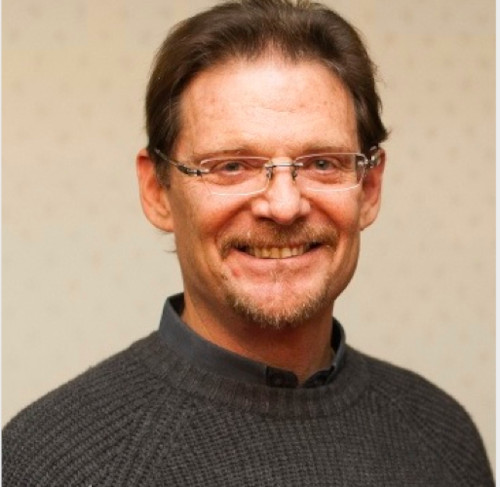
Learn to Communicate in 19 Slavic Languages/The Secrets to Success
Language: English and various Slavic Languages
Embark on an extraordinary linguistic voyage with Tim Keeley, Professor of Cross-cultural Management and polyglot author, as he reveals the intricacies of communicating in the Slavic world. In his comprehensive presentation at the Polyglot Gathering, Tim unveils the fascinating connections among the Slavic languages, sharing how proficiency in just three three can unlock understanding across this diverse language family. Furthermore, Tim reveals what 3 additional Slavic languages will help you understand all Slavic languages.
Drawing from four decades of passionate study and immersive experiences in Slavic countries, Tim provides a roadmap to navigate the complexities of the19 Slavic languages. He dissects the influence of historical events, explores the nuances of mutual intelligibility, and celebrates the cultural richness of the Slavic nations.
Whether you’re a seasoned polyglot or a curious beginner, his insights offer valuable keys to deciphering one of Europe’s largest ethno-linguistic groups and enhancing your language-learning journey. Join Tim for an engaging exploration of Slavic languages—their history, their ties, and the secrets to mastering their communication.
Tim Keeley
Tim Keeley is a Japanese citizen and a seasoned Professor of Cross-cultural Management with a profound expertise and a deep-rooted passion for languages and cultures. Author of the book A Life in 30 Languages, his work and travels have seen him engage with local communities in all countries where Slavic languages are spoken, including extensive exploration in 10 of the Republics of the former Soviet Union. This rich tapestry of experiences has not only honed his linguistic skills but also deepened his understanding of the subtle interplay between language and culture.
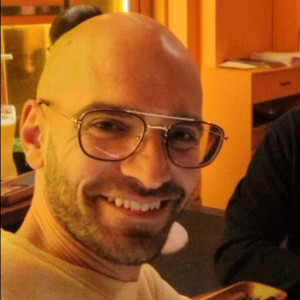
Learner's Attitude as the Key to Language Mastery: Insights from Our Questionnaire
Language: English
What if the key to mastering a new language lies not in learning regularity or the method chosen, but simply in our attitude?
In social psychology, attitude describes how our past experiences, beliefs, and feelings influence the way we perceive an object. This positive or negative perception influences what we think and how we behave.
It will surprise no one that polyglots have a more positive attitude towards language learning than those who struggle in the classroom. But do they feel less frustration when faced with similar tasks? Or do they simply believe in themselves more? Does the idea of meeting other cultures motivate them more?
In order to precisely identify the main differences between the two groups, we gathered the answers of Polyglot Gathering 2024 participants to 34 questions related to attitude and compared them to the answers of less successful language learners.
The good news? Unlike our inborn abilities, attitudes can be changed. Whether you’re battling your own language learning journey or assisting others in mastering a new language, this talk will present our key findings, offering fresh perspectives and practical strategies.
Philippe Rendulić
Growing up bilingual in a country with four official languages and dozens of dialects made him quickly embrace linguistic diversity. Since the first Corona lockdown in 2020, linguistics and language learning have become his hyper-fixation. Seeing how much this topic is still suffering from outdated misconceptions, he created Punk Linguistics, a pop science project aiming at debunking the common myths and wishing to inspire everyone to learn languages.
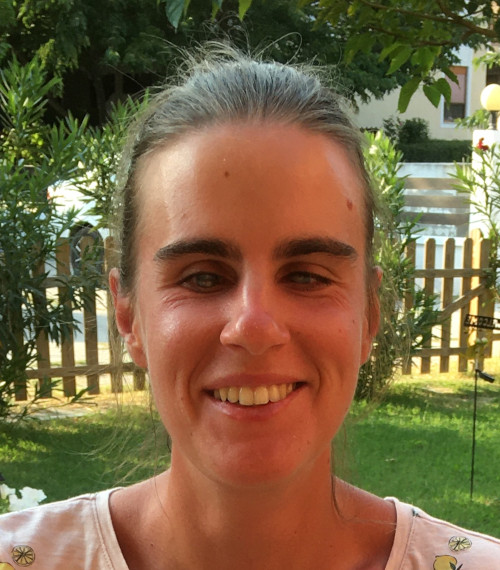
Learning pronunciation of different languages through singing (a short talk with a discussion)
Language: English
In this short talk with a discussion afterwards, I would like to discuss how singing in different languages helps improving my pronunciation in these languages. If I find some scientific articles on this subject, I will briefly mention them and afterwards, I would like to talk about my experience in this respect. I will illustrate some examples that show how useful for one's pronunciation it is to sing in the target languages. Before the Q&A session, I would like to discuss on this topic with the other participants by asking them some discussion questions.
Olga Koeva
Olga Koeva is a Bulgarian hyperpolyglot and a professional organist and pianist. She has a Bachelor’s degree of sacred music and a master’s degree of organ improvisation. Additionally, Olga has a Bachelor’s degree of International Relations and Management at the University of Applied Sciences in Regensburg, Germany. Currently, she is reading a Master’s degree of Management of Intercultural Studies at the same university.
Olga Koeva has always been interested in studying, practising, analysing and improving languages. Olga speaks 13 languages fluently and is still improving them by reading literature in all these languages, listening to radio and communicating with her friends.

Lessons I learnt from language immersion as a beginner (and becoming a celebrity)
I’ve always wondered what it’s like to be a celebrity language learner. Last summer, it became reality—thanks to a language immersion journey. As a casual learner who prefers gradual absorption of a target language, I never saw the appeal of the intensive full-immersion mode of learning. But when an opportunity presented itself, I arrived in Vilnius, Lithuania, hoping to go from zero Lithuanian to a functioning speaker within one month.
Facing the unfamiliar, I applied my polyglotting experience and adopted an analytical approach towards making most of my time, absorbing the language and culture as fast as possible, in whole new ways. Along the way, I became a minor online celebrity, which taught me lessons about the target language’s culture as well.
You might also be considering doing immersion learning yourself, whichever level you’re currently on. In this talk, I’ll share the lessons I learnt: I laid out a game plan, tried strategies, and brought my polyglot habits and instincts. I’ll compare it to immersion as a non-beginner, to figure out what worked and what didn’t, so that you, too, can bring my experience to your next new language, whether you’re learning it in the country or at home.
Israel Lai
Israel Lai is a composer by day and a language learner by night. He discovered his passion for languages when he first taught himself German on his own, ten years ago. Amid lockdown, he created the language-linguistics podcast 絮言.狂想, discussing language topics closer to Cantonese listeners and creating listening materials for Cantonese learners. He also runs the YouTube channel Rhapsody in Lingo, creating multilingual videos about his language learning and life abroad. Israel is currently pursuing a PhD in Composition at the University of Manchester, focusing on space and urban landscapes. He is also a stenography learner.
Let's get crafty with Finnish! 2.0
Language: English and Finnish
Finnish is one of the hardest languages, or so they say.. In this workshop, however, I will show language enthusiasts and crafty souls how easy creating sentences in a new language can be! This workshop is the improved version of my creative hands-on language learning method suitable for anyone interested in language structure, incomprehensible poetry or long letter combinations - no previous knowledge in the language needed.
Alina Raatikainen
Alina is an infinitely curious and incredibly lazy language lover which is why she's always looking for new creative ways of teaching the languages she speaks.
Let's write a diary
Language: English
Embark on an exciting linguistic journey with my immersive workshop designed to kickstart your Polish (or any other language) writing skills! Join me as we delve into the art of expression through daily journaling. Perfect for beginners, this workshop introduces a dynamic approach to language learning, empowering you to communicate confidently in Polish from the very start.
I’ll guide you through a progressive series of writing exercises, starting with basic sentences, and gradually, step by step advancing to more intricate structures. I’ll use Polish as the example language, but you can use the technique for any other language. I have practised the method with my students, and they find it very useful.
Jan Oko
Jan Oko is a passionate for languages and linguistics, for English and Polish teaching for the classical language of Latin. As an experienced teacher and learner he developed many techniques and strategies to acquire foreign languages. He is also the author of the podcast "Polish with John".

Lærið um nýju íslenskuna! Learn the New Icelandic!
Language: English, Icelandic
Icelandic crash courses have become parodies of themselves. “Haha, look at our long place names. Dyin’ means ‘hi’. Can you say Eyjafjallajökull? Volcanoes vikings Björk. Teehee Greenland is icy and Iceland is green”.
While it’s better than nothing, these crash courses put forth a largely outdated image of a country and language that are rapidly changing.
What about learning the Icelandic of the present and future? In this crash course, you will learn basic Icelandic whilst also learning about sections of Icelandic society not often represented in the language and the country’s external image.
Íslenskunámskeið fyrir byrjendur hafa þróast út í einn stóran brandara. „Haha sjáið hvað staðarheiti eru löng. „Daginn“ hljómar eins og dyin’ á ensku. Geturðu sagt „Eyjafjallajökull“? Björk og víkingar eþaggi? LOL Ísland er grænt og Grænland er bara ís“.
Þó að það sé betra að bjóða upp á slík námskeið frekar en engin námskeið þá setja þessi námskeið fram frekar úrelta mynd af þjóð og tungu sem eru ört að breytast.
Hvað með að læra íslensku nútímans? Í þessu örnámskeiði lærir þú bæði grunnatriði tungumálsins og um þverskurð hins íslenska samfélags sem er lítið sjáanlegur út á við.
Derek Terell Allen
Derek Terell Allen is an Icelandic teacher based in Reykjavík, Iceland’s capital. He is African-American-Icelandic and generally hates being asked where’s he from. He was educated at the University of Iceland and has been very active in his community for a number of years. When it comes to language, he feels that it’s important for people to do away with misconceptions and to stop assuming someone’s linguistic abilities based off of things like appearance and background. He also speaks intermediate (Flemish) Dutch and is learning Yoruba, one of his heritage languages.
Managing a multilingual academic community: an example of Vincent Pol University in Lublin, Poland
Language: English
The talk is a characterization of the multicultural and multilingual academic community of Vincent Pol University, which is a leading University in Poland in terms of the number of foreign students (according to Perspektywy University Ranking 2023). A brief outline of the history of the University is going to be presented as a background to the analysis of its current level of internationalization. Then, numerous benefits and challenges that stem from such a character are going to be discussed together with the steps that have been taken in order to cater for the unique needs of the multicultural and multilingual academic community.
Przemysław Terejko
Przemysław Terejko is an associate professor at Vincent Pol University in Lublin. He is a linguist specializing in pragmatics and cognitive approaches to language. In his career, he has taught numerous courses related to the history of English language, world Englishes, pragmatics, computer-mediated communication and many others. He also teaches Polish as a foreign language to English-speaking students of Vincent Pol University. Since March 2020, he has been the Head of Studies in English Department at VPU.

Master Chinese, Vietnamese, Thai, Lao, Indonesian, Malay Together / The Secrets of 6 Fascinating Typological Similarities
Language: English
Have you ever wondered how learning one Asian language could open doors to many others? Welcome to an extraordinary linguistic journey through East and Southeast Asia, where we’re not just exploring Chinese, Vietnamese, Thai, Lao, Indonesian, and Malay languages, but also unlocking a unified key to their understanding. Imagine the thrill of discovering how these diverse languages, despite their unique histories, share remarkable similarities in structure and usage.
In this talk, we’re exploring the intriguing concept of typological similarities among certain languages. Typological similarity refers to the common features shared by these languages, which can simplify the learning process for you.
One of the most interesting features of these languages is their unique approach to expressing time. Unlike, many European languages that rely heavily on verb tenses to indicate when an action happens, these languages employ a different strategy. They use “context markers” and “aspect markers”.
It showcases how languages can convey complex ideas about time and experience without relying on the conventional tense system found in many European languages.
But wait, get this, a bonus - our exploration extends beyond these six languages. Khmer (or Cambodian) and Burmese exhibit strikingly similar linguistic features common to this vast geographical area.
Tim Keeley
Tim Keeley is a Japanese citizen and a seasoned Professor of Cross-cultural Management with a profound expertise and a deep-rooted passion for languages and cultures. Author of the book A Life in 30 Languages, his work and travels have seen him engage with local communities in all countries around the globe, especially in Asia where he has lived for 43 years. This rich tapestry of experiences has not only honed his linguistic skills but also deepened his understanding of the subtle interplay between language and culture.

Multilingual concert with Olga Koeva
Language: Multilingual
In this concert, I would like to entertain the audience of the Polyglot Gathering in Prague by singing songs of my favourite styles: latino, samba, salsa, bossa nova and many others.
Olga Koeva
Olga Koeva is a Bulgarian hyperpolyglot and a professional organist and pianist. She has a Bachelor’s degree of sacred music and a master’s degree of organ improvisation. Additionally, Olga has a Bachelor’s degree of International Relations and Management at the University of Applied Sciences in Regensburg, Germany. Currently, she is reading a Master’s degree of Management of Intercultural Studies at the same university.
Olga Koeva has always been interested in studying, practising, analysing and improving languages. Olga speaks 13 languages fluently and is still improving them by reading literature in all these languages, listening to radio and communicating with her friends.
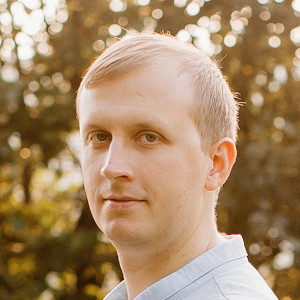
Musical language quiz
Language: Multilingual
How good are you at recognizing various spoken languages? And what about sung languages? Come to our quiz show and try to guess what language the songs are in!
If you participated last year, don’t worry, the songs will be different.
Matthieu Desplantes
Matthieu is from France but has lived in Slovakia and now lives in Austria. He is one of the organizers of the Polyglot Gathering. He mostly works as a programmer but languages are his true passion. He recently started a YouTube channel about languages in French.
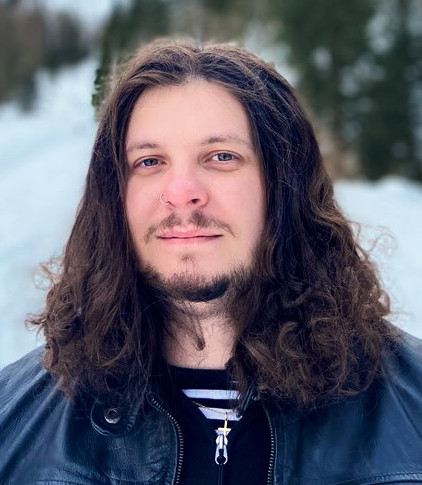
Navigating Language Families: A Germanic Journey
Language: English with a bit of German, Norwegian, Swedish and Dutch
Embark on a linguistic adventure as we delve into the intricacies of language families in this engaging talk. Drawing from my personal experience navigating through English, German, Norwegian, Dutch and others. I’ll be your guide in uncovering the secrets to effectively diving into a language family.
We’ll start by exploring the concept of language families, understanding how languages evolve and branch out from common ancestors. With a focus on Indo-European languages, we’ll dissect the similarities and differences among English, German, Norwegian, Swedish and Dutch, offering insights into how shared roots can facilitate learning.
Throughout the talk, I’ll share practical tips and strategies based on my own journey, from leveraging cognates and shared vocabulary to embracing cultural nuances embedded within each language. Whether you’re a beginner or seasoned language enthusiast, you’ll discover actionable techniques to accelerate your learning process and deepen your connection with languages within the same family.
Matheus Ventura Lang
Matze is a German and Brazilian Portuguese native speaker, well known Polyglot, fluent in 15 languages and passionate about Germanic ones. He is also part of Master Academy, established language school in Brazil and he is obtaining his MA (two subject programme) in Philosophy and Scandinavian Studies (with main focus in Medieval Studies) in Germany.
In his spare time he plays guitar like a rockstar.
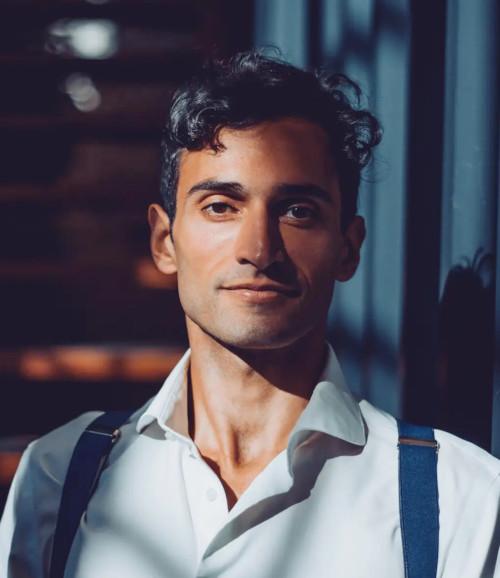
Nobody can teach you a language
Language: English
Are you a language learner or a language user?
It’s easy to get stuck in learning mode and never making the jump to language user.
Especially when the language you are acquiring is structurally different from languages you already now.
Yet, to get good at a language it is critical to use it in real life contexts.
In this talk I’m sharing what I’ve learned from turning over 100 frustrated Estonian learners into Estonian users – how focusing on structure first unlocks more content from the get-go and turns you into an independent student of your chosen language.
Dario Hamidi
Dario sees programming and languages as the same thing - manipulating and playing with abstract systems. He's been involved with a variety of programming and natural languages professionally for over 16 years. Estonian is dear to his heart, and Hungarian is a close second.
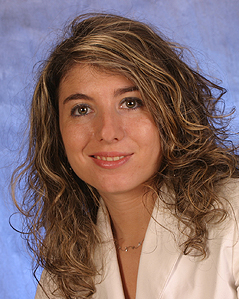
Overcoming procrastination: Strategies for language learners and beyond
Language: English
Procrastination is a universal challenge that affects many aspects of life, including the pursuit of language learning. This interactive talk & workshop aims to address the pervasive issue of procrastination by offering practical strategies to understand and overcome it.
It will additionally incorporate innovative language coaching tools.
Elisa Polese
Elisa Polese is not just a language teacher but a dedicated language coach, and author. Her passion for languages has led her to study over 25 languages, and she teaches 13 of them including Italian, German, English, Spanish, Russian, French, Dutch, Catalan, Portuguese, Greek, Hindi, Arabic, and Esperanto at various levels.
Elisa employs ICF techniques and “Smart Learning” strategies to help her students overcome language learning and mindset barriers, guiding them to achieve their linguistic goals within a very short time. Her lessons and workshops are designed not just to significantly improve language skills but enable students to begin speaking one or more languages from the very first day.
Elisa is renowned for her dynamic presentations and workshops about language learning, multilingual teaching & learning, intercultural communication, and her passion for life coaching applied to language learning.
She has lived and taught in the UK, Russia, Germany, Spain, France, Italy, and Switzerland. Elisa holds an MA in International Communication from the University of Modena and Reggio Emilia, Italy, and another in Didactics from the University of Siena and Perugia, Italy. She also has BAs in Translating and Interpreting from the University of Bologna, Italy, and the University of Grenoble, France. Furthermore, she holds the CELTA certification from the University of Cambridge.
Currently, Elisa is focused on language & life coaching, and on her language programs and courses that combine the best of her teaching method and heer experience on mindset in language learning.
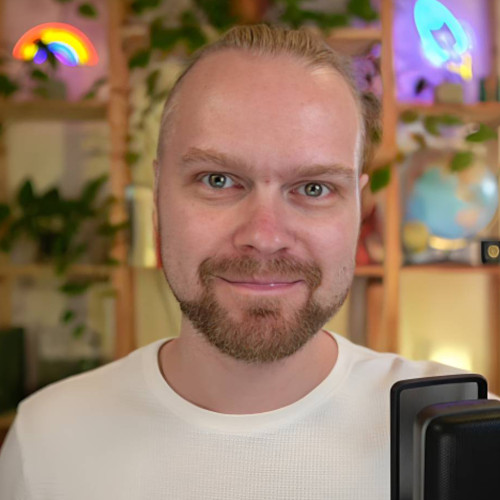
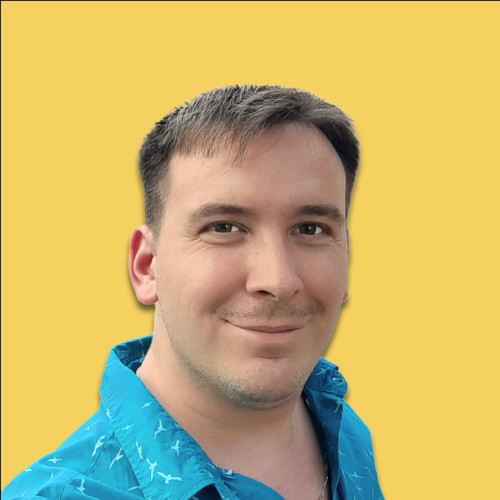
Polish Czech Mutual Intelligibility Workshop
Language: Polish, Czech, English
This interactive session with Norbert and Vít is a deep dive into the shared linguistic heritage of Polish and Czech languages. As closely related Slavic tongues, they hold a unique key to unlocking each other, often with little to no prior study.
Join us as we explore the fascinating phenomena of mutual intelligibility. Through engaging activities and guided language experiments, you’ll discover surprising similarities, decode cognates, and unveil the history woven into each language. Our workshop is designed not just to teach, but to transform the way you perceive and interact with Slavic languages.
Whether you’re a Polish speaker intrigued by Czech or vice versa, you’ll find yourself at the edge of a thrilling linguistic frontier. This workshop is perfect for language enthusiasts, curious minds, and cultural explorers eager to expand their horizons. Speakers of other Slavic languages might find it interesting too!
With the “Polish Czech Mutual Intelligibility Workshop,” prepare to be amazed as words and sentences unfold into a clearer understanding, bridging the gap between two cultures. Don’t just learn — experience the joy of discovery in real-time. Your adventure into the heart of mutual intelligibility awaits!
Norbert Wierzbicki, Vít Benešovský
As a creative language educator and the innovative mind behind the Ecolinguist YouTube channel, Norbert is at the forefront in the field of linguistic education. His passion for languages shines through in his commitment to helping others explore and understand World’s languages. With a talent for making learning interactive and accessible, Norbert has transformed the traditional approach to language acquisition. His dedication to breaking down barriers between closely related languages has fostered an engaging community of learners worldwide, all united by a shared love of language and culture.
Vít Benešovský is a Czech language educator based in Prague, with a Master’s degree in Teaching Czech as a Second Language from Charles University. He has been teaching since 2014, primarily focusing on Czech but also English, and has worked with language schools and NGOs. Vít is active online, running a YouTube channel called Czech with a Praguer and offering courses through various platforms, including italki. His YouTube channel caters to foreigners learning Czech, adapting his lessons to the specific challenges faced by speakers of different language families. He utilizes a communicative approach, emphasizing interaction and practical use of language in his teaching.
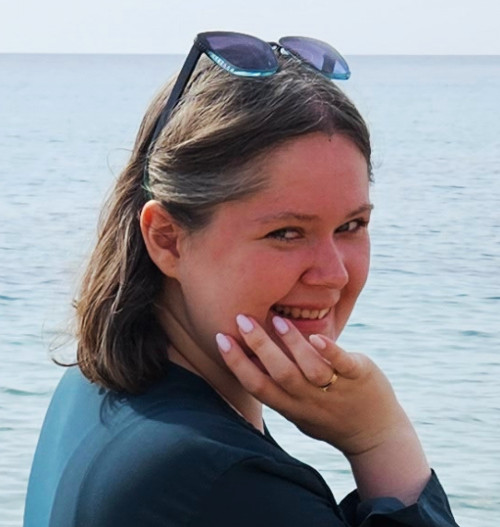
Polish crash course
Language: English, Polish
Have you ever heard that Polish is the most difficult language in the world? Poles like to believe this, but it is not true. I will prove it to you in this short course. You will learn basic phrases and grammar so that you will end up knowing how to introduce yourself.
Zuzanna Yevtushyk
Zuzanna Yevtushyk is a university teacher of Polish as a foreign language at the Vincent Pol University in Lublin and an examiner at state Polish language certification examinations. She holds a master's degree in Polish philology and a bachelor's degree in Romance studies from the John Paul II Catholic University of Lublin, currently studying Sinology there. Her scientific interests include phonetics, phonology, contrastive linguistics and language acquisition, wherein she seeks to examine the tenuous possibilities of how to teach Polish better.
Politica linguistica & lenguas minorizadas: l'Italia, la France, España face à ses langues
Language: Italian
France, Italia, España, sono i tre grandi stati latino-europei e linguisticamente hanno molto in comune: una lingua ufficiale prestigiosa, numerose lingue regionali di origine latina ma anche minoranze di altra origine. E ci sono ben due lingue minoritarie in comune nei tre stati.
Sin embargo, la historia y la política han moldeado paisajes lingüísticos muy diferentes y lo que es más o menos evidente en un estado, parece una locura en el otro. Por cada estado vamos a hacer un recorrido de sus lenguas minorizadas y después vamos a comparar diferentes aspectos lingüísticos.
Comment chaque constitution traite les langues ? Est-ce qu’il y a des sujets plus clivants ? Protéger les minorités linguistiques est de droite ou de gauche ? Quelles minorités linguistiques se portent le mieux ?
Michael Boris MANDIROLA
Michael-Boris MANDIROLA is the former president of the World Esperanto Youth Organisation and he is still active in several Esperanto organisations, from the local to the international level, as well as in Euro-federalist ones.
He has worked and studied in Piedmont, Wales, Catalonia, Silesia and Occitania; thanks to these experiences and Esperanto activism he developed a particular attention towards language diversity and language rights.
By the way he graduated as a computer engineer from the Polytechnic University of Turin and is working in the aeronautical industry, but that’s less related to human languages.
Reviving Indigenous Languages: My Vision
Language: English
The extinction of any language signifies a loss of invaluable heritage and is unacceptable in today’s connected world.
Each indigenous language holds millennia of history, traditions, and knowledge—including music, botany, biology, ecology, geology, medicine—that are priceless and vital for mankind’s collective knowledge.
In this talk, I’ll share my experiences with indigenous languages and how Glossika is developing scalable technology for all 7000 languages. I’ll outline concrete strategies detailing how we’re achieving this.
My vision includes empowering communities in their language revitalisation, preservation and promotion efforts, ensuring they thrive, and making them accessible so every unique voice can be heard and understood.
Join us in our mission to protect global linguistic diversity and foster a more inclusive future.
Michael Campbell
Michael Campbell is the founder of Glossika, a pioneering language technology company renowned for enhancing language learning, from widely spoken to endangered languages. As a polyglot fluent in several European and Asian languages, Michael's research in language studies, particularly in Sinitic dialectology and Formosan languages, enriches his approach. His innovative work at Glossika leverages technology to advance linguistic diversity and accessibility. Michael is deeply committed to empowering communities worldwide, enabling the revitalisation and promotion of indigenous languages, and ensuring that every cultural voice is preserved and celebrated.

Rhythmic Polyglot: Sing, Learn, Repeat!
Language: Multilingual
Join the lively “Rhythmic Polyglot: Sing, Learn, Repeat!” workshop – a fun blend of singing and language learning! We’ll explore some catchy songs in different languages, unravelling the language magic in each tune. Get ready for playful warm-ups to kick off our musical journey. Be prepared to lift your voice, repeat those linguistic gems, and make singing a key to unlocking multilingual proficiency. It’s not just about singing; it’s a joyful mix of languages and tunes, making learning a breeze. Discover how singing aids memory and pronunciation, turning the workshop into a melody-packed adventure where singing and learning go hand in hand!
Marta Melnyk
Marta Melnyk is a polyglot and language enthusiast. As a native Ukrainian speaker, she also communicates in English, German, and Polish. In her free time, she shares linguistic expertise by teaching German. Currently expanding horizons, she is learning Greek, Portuguese, Hindi, and occasionally some Spanish and French. Marta enjoys conducting workshops to inspire others to explore the linguistic and cultural richness that Ukrainian language offers.

Same same but different: the Scandinavian languages Norwegian, Swedish, and Danish
Language: English
“There is only one Scandinavian language – but the Swedes can’t write it, and the Danes can’t speak it.” This Norwegian joke sums up the language situation in the Nordic countries quite well. In this lecture you will hear more about the languages of the North and how you can learn them.
Werner Skalla
Werner is a publisher of story-based language learning textbooks and online courses. He is fluent in five languages (German, Norwegian, English, French, and Czech).
Scandinavian puzzle
Language: Polish
Are you confused with spelling and grammar of the 3 closely related Scandinavian languages? I can explain major differences in an intuitive way. I support my speech with a historical outline, examples and amusing false friends.
Paul Suder
Paul works as a language teacher in Norway. He completed his master's degree in Far East languages with specialization in linguistics at the Jagiellonian University. In Norway he finished university courses of practical pedagogical education in Japanese, as well as courses of the Spanish and German language and literature. He's addicted to learning and exploring new languages.
Speak Latin like the Romans!
Language: English and Latin
This Latin crash course is the extended version of the course from PG 2023. You’ll make your first steps in Latin and learn basic phrases with the TPR (Total Physical Response) method and the famous Oerberg course book Lingua Latina per se Illustrata.
No previous language knowledge is needed. You will memorise neither declensions nor conjugations. On the contrary, you will learn to use the context to help you understand the text you read.
Jan Oko
Jan Oko is a passionate for languages and linguistics, for English and Polish teaching for the classical language of Latin. He firmly believes in the power of “living methods” to learn and teach ancient languages, bringing these ancient tongues to life for modern learners.
In addition to this, Jan is also an author and creator, having launched the popular “Polish with John” podcast to help learners master Polish. He is also currently working on a project to create a database of Latin authors from Poland and teaching Latin as an extra class at a public school.
Speak with the, "Eternal Blue Sky," Intro & Basics of Mongolian.
Language: English
Whether it is Star Wars’ cute Ewokese based off of the Kalmyk-Mongol language, Jedi: Fallen Order’s song, Sugaan Essena written and sung by the talented HU, Queen Amidala’s senate gown costume inspired by a traditional Mongolian noblewoman’s dress, or the humble hamburger, you’ve probably surreptitiously come across elements of Mongolian culture, language, dress, and music across pop culture and beyond
Even seemingly ordinarily-encountered nouns and adjectives in English such as: Siberia, taiga, Dalai Lama, hooray, mogul, hordes, crimea, kremlin, khan, bistro, kamikaze, etc. are of Mongol etymology or inspiration. Additionally, if you are already familiar with the grammar and phonetics of either Korean or Japanese, then Mongolian should theoretically feel quite similar to the sounds and structure of this sprachbund, extending itself further to the Tungusic branch of languages as well, such as Manchu and Evenki.
So take a peek and experience for yourself the language of the Mongol nomads and warriors firsthand and perhaps even try a hand (or larynx!) at Khöömii aka Mongolian throat-singing, which according to some ethnomusicologists are human sounds older than the mechanisms of human language itself.
Solo Bat-Erdene
Solookhuu (Solo) Bat-Erdene is a political scientist who graduated from the University of Pittsburgh and is currently based in Mitteleuropa, maintaining a hobby in historical/comparative linguistics whilst improving his grasp of the Japonic, Koreanic, Sinitic, and Tungusic languages.
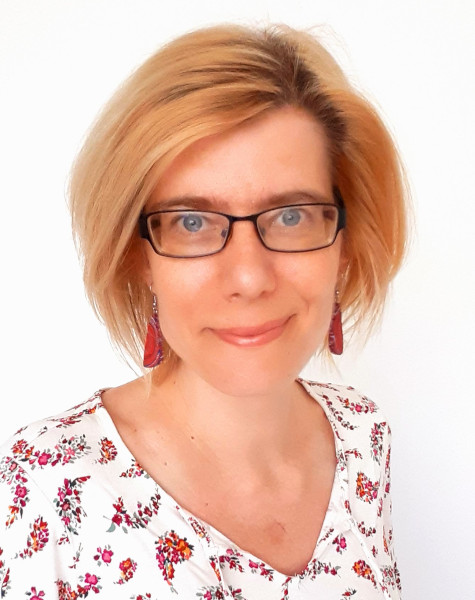
Start speaking Hungarian from 0
Language: English and Hungarian
How cool is that to speak Hungarian? Those who learn it, usually fall in love with it, and love this language for its pure logic. Taste Hungarian in this session, and learn some useful structures. By the end of the workshop, you’ll be able to tell 5 sentences about yourself - in Hungarian! Sounds cool, right?
Bozorádi Petra
Petra is a linguist and a Hungarian tutor who has worked with students from more than 60 countries. Her mission is to change the narrative about Hungarian being one of the ‘hardest languages to learn’.
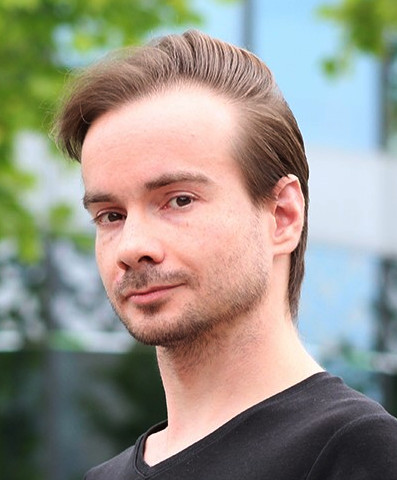
Street Czech – What the dictionary won’t teach you
Language: Mostly English, parts in German
Czech comes in many variations. The official version you'll find in any book or app. But that will only take you so far. The way natives really speak (and we're not even talking dialects here) is usually a shock to everybody who is learning the language. To keep this shock to a minimum for you, I'll introduce you to a few native words and phrases you might encounter in Czech Republic. There might even be a bit of profanity involved.
Thomas Brennecke
After finishing his vocational training in commerce, Thomas went on to study translation science in Leipzig, Germany. His profession as a translator led him to Prague, where he discovered his first Slavic love - The Czech language. This, in turn, had him go on to learn Ukrainian and Belarusian as well.
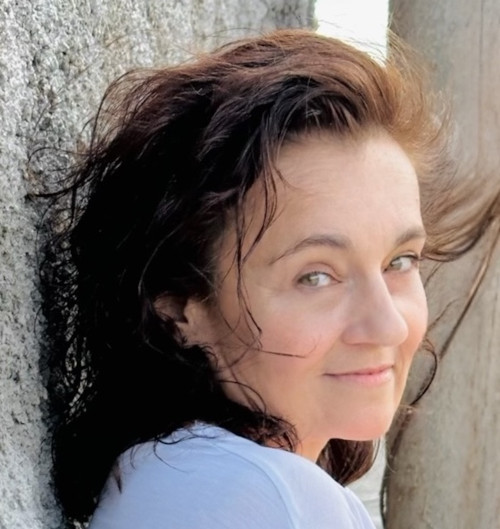
Sube al escenario: cómo crear como los actores un personaje que viva y sienta en otro idioma
Language: Spanish
Actuar es vivir con verdad en circunstancias imaginarias.
Los actores utilizan multitud de técnicas para crear personajes creíbles desde la intuición, sus propios recuerdos o el sonido y cadencia de sus cuerpos. ¿Y si tomamos prestadas algunas para jugar a ser un hablante nativo en otro idioma? ¿Cómo sería el tú ruso, holandés o chino?
Partiendo de la imaginación, de nuestro mundo personal de deseos, fantasías y emociones, veremos cómo construir un personaje con el que interiorizar sonidos, vocabulario y ademanes para comunicar mejor en la lengua que queramos habitar.
¡Que se abra el telón!
María de Vera
María de Vera is a creative generalist and a musical actor who fell in love with languages and imagination at a tender age. «Saltando al elástico» (please insert link to: multilingualcreative.substack.com) is her weekly newsletter about creativity and innovation. Born in Tenerife, Spain, she believes a playful approach to life sparks limitless possibilities for creativity and fun. That includes tinkering with all the languages she can sing in. Even Hungarian. More about María at multilingualcreative.com
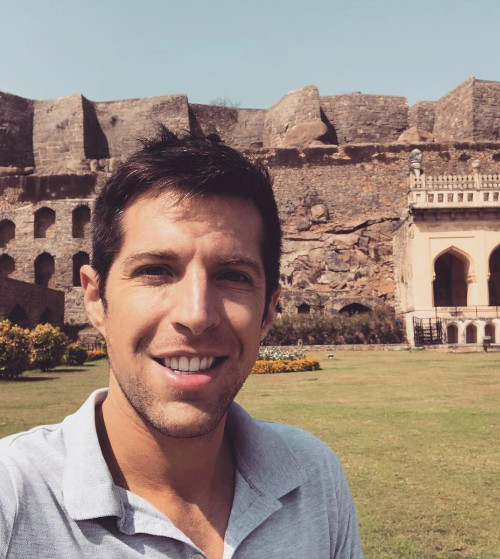
The Characteristics of Major Language Families
Language: English
Join us for a straightforward exploration of linguistic characteristics shared among major language families. From Germanic, Romance, Slavic, and other languages, we'll uncover common features that offer practical benefits for language learners and analytical thinkers alike. Gain a deeper understanding of shared grammar structures, phonological similarities, and cultural influences that transcend these diverse linguistic landscapes. Whether you're embarking on language learning or seeking to sharpen your comparative linguistics skills, this talk equips you with essential insights for your journey.
Adam Raelson
Adam Raelson thrives on building intercultural connections and has a passion for languages. As a Global Communications Manager, he leverages over a decade of corporate communications and employer branding expertise. With a Bachelor's in Linguistics and a Master's in Marketing & Communications, his journey from the U.S. took him at a young age to study in Norway and he has now been living in the Czech Republic for 16 years. Having explored 70 countries (and counting!), Adam is driven by a relentless curiosity and a desire to brave comfort zones for a brighter, more connected future.
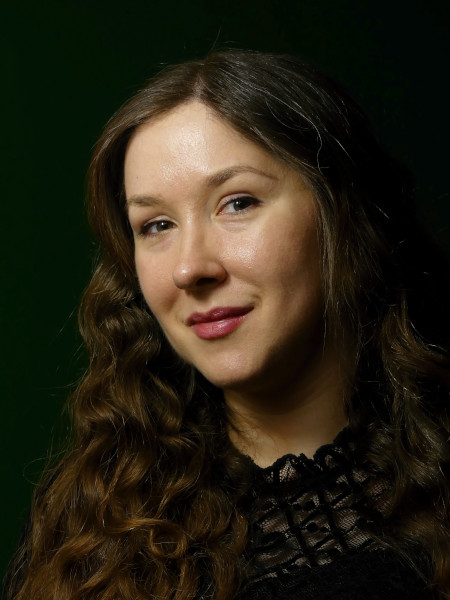
The Language of Self: How Speaking Multiple Languages Shapes Who We Are
Language: English
Imagine effortlessly swapping languages like a code-cracking ninja, unlocking doors to hidden cultural gems. That’s the superpower of a polyglot! But hold on, just how many languages define this elusive breed? Two? Three? Maybe a mind-blowing ten? Does knowledge of multiple languages affect the identity of a polyglot? Is a polyglot’s identity a symphony of languages, each of its notes echoing a different culture? Do polyglots dance to the rhythm of belonging or a melody of displacement?
Curious and eager to find answers to these questions, I embarked on a research adventure! I crafted a questionnaire containing 30 questions and distributed it among language enthusiasts. And guess what? Over 30 amazing individuals responded, sharing their unique linguistic journeys and fascinating perspectives!
Buckle up, language lovers, because I’m about to reveal some fascinating insights I gleaned from their stories. Get ready to explore the world through the eyes of these multilingual masters and discover how languages shape who we are!
Inese Pintāne
Inese Pintāne is a multi-lingual scholar with a passion for languages and folklore. So far, she has studied more than 20 languages at various academic institutions. Driven by a passion for languages, Inese is currently pursuing a PhD in Slavic Philology at Charles University, focusing on the structural-functional analysis of folktales. While deeply engaged in her PhD, Inese is also expanding her linguistic expertise through the Master's program in Modern Linguistics at Vytautas Magnus University.
The Only Greek Workshop You’ll Ever Need
Language: English, Greek
Let's discover Greek together! I'll show you how to speak real Greek and make your holidays in the country or your conversations with that cool Greek person you know an unforgettable experience. I'll also teach you the real Greek intonation you can use to make the phrases you learn shine. Let's learn what textbooks don't teach, talk to each other, and have some fun! This is not your typical beginner workshop, so all levels are welcome!
Maria Spantidi
Maria was born and grew up in Greece. At the age of 20, she caught the language learning bug while testing a new language learning website and went on to learn several languages by taking on fun and creative challenges. A language learning bet with herself prompted her to move to Germany, where she now lives and works, learning German, a language she learned completely for free. Her book "Fluent For Free" inspired many language learners and some famous polyglots to learn and teach languages more effectively.
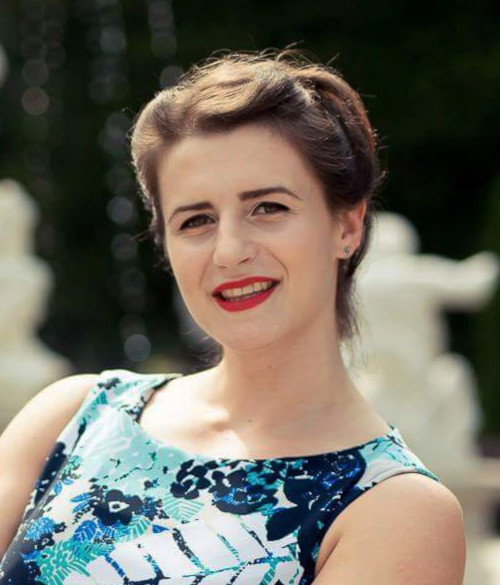
The Power of the Hour
Language: English
Join me on an immersive journey as I share my personal odyssey of dedicating just one hour a day to studying Swedish for six transformative months.
Discover the impact this focused approach had on my language skills and delve into the detailed analysis of the progress achieved.
In this talk, we’ll explore the intricacies of effective language learning within the confines of a single hour each day. I’ll unravel the strategies, challenges, and triumphs encountered during this linguistic experiment.
Be prepared for a dynamic session filled with practical tips, motivational anecdotes, and the science behind accelerated language acquisition. Explore the potential of your daily hour through unconventional language learning methods like apps, podcasts, movies, books and much more. If there is a way to learn a language, I tried it and we will talk about it!
Whether you’re a seasoned polyglot or a language enthusiast, “The Power of the Hour” offers interesting and fun insights into optimizing your language study routine.
Krisztina Fehér
Meet Krisztina – a down-to-earth orthopedic surgeon who also happens to be a fitness trainer and a bit of a language buff. Despite the seemingly unrelated fields, she attributes her success to good old perseverance. Born Hungarian but raised in Romania, Krisztina speaks five languages and is casually picking up a few more.
When she’s not fixing bones or learning languages, Krisztina’s favorite pastime is traveling. Her simple goal? To visit every country in the world.
In a world where people often stick to their lanes, Krisztina’s just taking life one step at a time, casually navigating through surgeries, language lessons, the world of fitnes and a bit of globe-trotting.
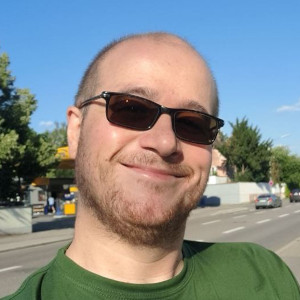
The Teacher's Lounge: a Workshop for Language Teachers (and Anyone Else Interested in Teaching)
Language: English
At events like the Polyglot Gathering, there is — understandably — a lot of focus on how to learn languages and achieve fluency; but how does one teach a language? How much background preparation is necessary? How much focus should there be on grammar? Should a teacher only ever speak the target language, or can they use the learner’s language, too? How often and how should a teacher correct mistakes? And what role should media and technology play in all this?
This workshop is aimed at anyone who is currently teaching or would like to start teaching languages, as well as anyone who has an interest in didactics. In the course of this workshop, we will examine different approaches to teaching languages, take a look at some of the issues that language teachers often have to face, and try to find solutions to those issues. I will share my personal experiences, strategies, ideas and anecdotes, and everyone else will be more than welcome to do the same and contribute to the discussion.
Leonardo Ricci
Leonardo is originally from Italy, but currently lives in southern Germany, where he is a freelance corporate trainer for Business English, Italian and French. He has also taught in middle schools in France for a time. He speaks, in varying degrees of fluency, Italian, English, French, Spanish, German and Portuguese, and he is trying to learn several other languages.
When not teaching or learning languages, Leo enjoys playing the guitar, cooking, travelling, playing chess, reading pretty much anything he can put his hands on, going on long walks and smiling all the time for no reason whatsoever.
The Whimsical World of Endangered Languages – a lens into the obscure and the unique.
Language: English
A language is more than just a tool for communication. A language is a physical manifestation of thousands of years of history, culture and tradition. It is a door to a larger chapter of the human story.
This talk will focus on the diversity of languages around the globe, highlighting many of the most obscure and unique traits of the world’s languages. The talk will also discuss the most outstanding stories (that you likely have never heard of) of the incredible individuals who did their part in preserving all of our shared legacy.
From ǃXóõ, the language with the largest phonemic inventory in the world, to the most unusual mixed language in history – the Algonquian-Basque Pidgin. From one of the most successful language revival stories of Manx, to the Cherokee man who invented his own writing system that would propel his nation to literacy, and inspire several other writing systems including in West Africa and China.
With this talk, I want to demonstrate that when it comes to languages, reality is truly stranger than fiction. I hope to inspire people to fight and preserve the diversity of our shared cultural heritage, so that future generations may experience it as well.
Shawn
Growing up in a multicultural environment, Shawn was already speaking 4 languages by age 10. In highschool, he taught himself Manx, and helped translate Minecraft into the language to create a new and fun resource for children. Shawn runs the YouTube channel imshawngetoffmylawn, where he focuses on obscure and endangered languages. Shawn achieved his BA in linguistics from Lancaster University and now works as a translator of English, Russian, Hebrew and Latvian. In 2024, he will begin his MA in Indigenous Studies in Canada, with the hope of working on revitalization efforts for the numerous indigenous languages of North America.
The polyglot recipes. An overview of the methods of past and current language masters.
Language: English
How did the polyglots of the past learn languages? What where their tricks in the times of no internet and radio? What are the stories of the new-age polyglots, learning languages in the times of technology, AI and resources? Let's dive deep into the methods of some of the most intriguing historical and modern figures and pinpoint their similarities in search of inspiration and pure fun.
Marta Durmowicz
Marta Durmowicz is a passionate of learning languages and their history, currently learning Italian and Czech simultaneously. During 10+ years of her experience in Marketing she grew a particular interest in enhancing communication within international teams and projects, as well as mentoring. Marta’s passion for languages led her to learn a total of 8 languages on varying levels. She’s currently focusing on bringing universal language learning tricks and tips to those that might need an extra boost. In her free time she is a pretty artsy person with a thing for motosports :)
Traditional or Simplified—Which Chinese Characters Should I Learn
Language: English
People don’t want to learn Chinese characters at all, why should they learn how to read and write at all? On top of that, what’s the incentive to learn the more complex, traditional forms? In my talk, I explain why learning non simplified Chinese characters is a good idea and how to do it.
Piotr Gibas
I have been teaching Chinese for the past 30 years and I recently published a Chinese textbook
Turkish Series As Tools for Language Learning
Turkish series and films have constituted a remarkable increase in attention over the past years by intriguing audiences not only within Türkiye but also around the globe. One of the most prominent aspects of Turkish series is their captivating plot. Shows such as "Muhteşem Yüzyıl" (Magnificent Century) and "Diriliş: Ertuğrul" have attracted international viewers because of their narratives, rich historical scenes, and characters. As viewers immerse themselves in these Turkish produced series, they become exposed to the Turkish language, hearing authentic dialogue and colloquial expressions in context. In this workshop we are going to explore the methods to learn the Turkish language through entertaining immersion in these rich series and films. We are going to endeavor to comprehend how these series acquaint foreigners with daily expressions of commoners in Türkiye and how they are utilized during natural speech. At the end, we will try to use some words and idioms in sentences while also connecting them to their context and gaining interesting facts about them. We will experience the interconnectedness between other languages and Turkish in an attempt to realize the cultural interactions of Turks! Get ready to take a profound look at Turkey and its culture!
Bahri Çağrı Toygar
Bahri Çağrı Toygar is a high school student at The Koç School in İstanbul, Turkey. Being intrigued by language learning methods and linguistics, he has endeavored to learn a plethora of languages by himself such as German, Italian, Chinese, Russian, Hebrew and Japanese! He is deeply interested in the way that distinct cultures express themselves through colloquial diction and how the cultural differences affect linguistics aspects such as grammar and idioms. He also bears a special interest in the way that foreigners learn the Turkish language.
Ukrainian language as an identity marker
Language: English
Embark with me on a captivating journey of exploration into the intricate interplay of language and identity in the thought-provoking talk, "Ukrainian as an Identity Marker." Discover how the Ukrainian language serves as a powerful symbol of cultural heritage, resilience, and belonging, weaving together threads of history, politics, and societal dynamics. Unravel the complexities of linguistic identity formation and preservation amidst changing landscapes, and delve into the nuances of how language shapes perceptions of self and community. Join me as we navigate through the rich tapestry of Ukrainian identity, uncovering the deep-rooted significance of language as a cornerstone of personal and collective belonging, and a tool which helped to shape our independence.
Daria Tatarenko
With a wealth of experience as a Ukrainian and English teacher spanning numerous years, Daria is an ardent enthusiast of language learning and teaching. Originally hailing from a russified region of Ukraine, she cultivated a deep love and appreciation for Ukrainian culture and language from an early age. In 2014, she made a pivotal decision to fully embrace Ukrainian, solidifying their commitment to its preservation and promotion. When the full-scale war erupted in 2022, she relocated to Europe, where she continues her efforts in advocating for Ukrainian culture and language, bridging communities and fostering understanding across borders.
Understanding Greek Structures
Language: English & Greek
Greek is still niche, so many of you haven’t even started it, or just know the alphabet. There is space for you here, in case we have complete beginners attending who wish to go through the script and some basics. And for the rest of you…
This is a workshop for those who have studied Greek enough to want to explore it further, and those who haven’t studied it enough to be fed up with it yet. More specifically, it is for learners at A1 to B1, who are literate in Greek and have acquired at least a basic vocabulary and grammar. Activities will revolve around:
- Rearranging sentences, playing with possible word combinations, & coming up with our own.
- Translation games, guessing word meanings through cross-linguistic comparisons.
- Exploring and experimenting with etymology while speaking Greek.
Αν είσαι μαζοχίστρια ή μαζοχιστής και σου αρέσουν τα ελληνικά, τότε αυτό το σεμινάριο είναι για σένα. Αν ξέρεις βασικές λέξεις και γραμματική στη γλώσσα, και είσαι από Α1 μέχρι Β1, έλα. Θα κάνουμε:
- «Ποια είναι η σωστή σειρά στις λέξεις;»
- «Τι σημαίνει αυτό; Πώς με βοηθάνε οι άλλες γλώσσες που ξέρω;»
- «Ποια είναι η ετυμολογία εδώ;»
George Karampalis & Michael Liddle
Michael, born in London, began learning Greek from his Cypriot grandmother at 8. He took private lessons as a teenager, eventually becoming a Greek teacher himself, developing an approach based on his own experience with this grammar-heavy language. His TikTok project, Greek Lessons in English, focuses on difficulties faced by English native speakers.
George (or Yorgos) is an educational-content creator, Greek tutor, and adept procrastinator. He enjoys breaking down language structures to learners, through context, etymology and comprehensible input. He has co-founded Difficult Greek, a project consisting of a website and a YouTube channel, where he should post more often.
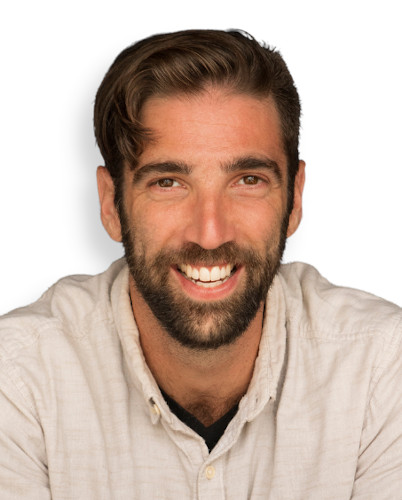
Uno, Dos, Today’s: An Intro to “Espanglés”
Language: English
In the evolving landscape of language learning, “Espanglés” emerges as a groundbreaking method, blending linguistic innovation with the intuitive understanding of pronunciation. This presentation, led by dialect coach Ruben Adery, introduces a novel approach to mastering pronunciation across languages, starting with American English and Latin American Spanish. By leveraging the familiar spelling systems of one’s native language, “Espanglés” facilitates an almost native-like pronunciation without the need for understanding phonetic symbols or convoluted technical rules.
Imagine pronouncing the Spanish word tres as effortlessly as saying “today’s” in an American accent. This method not only simplifies language learning but also enriches the speaker’s ability to communicate with clarity and confidence. Beyond a mere mix of Spanish and English, “Espanglés” represents a carefully crafted system designed to bridge the gap between reading and speaking, making it a powerful tool for language enthusiasts, actors, singers, and educators alike.
The presentation will explore the foundation and principles of “Espanglés,” offering insights into its development and potential to transform language education. Attendees will get a glimpse of how this approach is being extended to other languages, including Portuguese ("Portunglês"), Hebrew ("Hebrish"), and even English pronunciations using the Korean Hangeul alphabet (“Hanglish”).
Join Ruben for an enlightening session at the 2024 Polyglot Gathering in Prague, and embark on a linguistic journey that promises to challenge and change the way we think about language learning. “Espanglés” is just the beginning—unlock the potential to navigate the world of languages with ease and precision.
Ruben Adery
Ruben Adery, a distinguished language acquisition expert and dialect coach based in Los Angeles, has revolutionized the art of pronunciation and accent mastery across five languages: English, Hebrew, Spanish, Portuguese, and Italian. With academic degrees in Spanish and Linguistics, his unique methodologies stem from a deep passion for languages, fueled by extensive travels and immersive experiences in countries like Argentina, Brazil, and Israel. Ruben's exceptional ability to imitate numerous regional accents and his innovative strategies have empowered language learners, performers, and educators in over 50 countries to achieve native-like fluency. His approach, which tailors coaching to leverage students' native linguistic patterns, includes engaging exercises designed to transform pronunciation and enhance confidence in any language. With nearly 15 years of teaching experience, including a Fulbright scholarship in South America, Ruben has become a beacon for those seeking to perfect their language skills, ensuring clarity, authenticity, and connection in their communication. Join him to discover the joy of seamless expression and unlock your full potential in the global language community.

Visualisierung der Phonetik: Ein Schnellkurs in Akustischer Analyse
Language: German
Bei Spracherwerb müssen wir oft neue Phoneme lernen, die ungewohnt sind. Wie können wir unsere Sprache analysieren, um unsere Aussprache zu verbessern? Entdecken Sie die faszinierende Welt der akustischen Analyse! Tauchen Sie ein in die spannende Reise des Spracherwerbs, in der wir uns neuen Klängen und Phonemen stellen müssen. Erfahren Sie mehr über das Open-Source-Werkzeug Praat, das es uns ermöglicht, Schallwellen zu visualisieren und zu interpretieren.
Diese Präsentation ist eine Einladung zu durch die vielfältigen Akzente unserer Welt. Von den melodischen Tönen des Arabischen bis hin zu den herausfordernden Klängen des Chinesischen werden wir die Unterschiede und Gemeinsamkeiten erkunden, die unsere Aussprache formen. Kommen Sie und lassen Sie sich von der Magie der Sprache verzaubern!
Keagan Cross
Keagan Cross is currently an undergraduate in Spanish and German linguistics. As a polyglot that has studied about ten languages, they are fascinated by the process of language learning. They currently work as a research assistant in a Second Language Acquisition Lab where they are helping to analyze Spanish language learners' phonological acquisition. This summer, they will be teaching English in Central Java while continuing their study of Bahasa Indonesia and Indonesian language policy. When they're not overcommitting to learning multiple languages at the same time, they can be found on the river where they work as a whitewater raft guide, playing pool with their partner, or doing yoga with their dog.
What Is and What Isn’t Filipino (or Is It Tagalog?)
Language: Spanish
What language do they speak in the Philippines? Is it Filipino? Is it Tagalog? Do they still speak Spanish? Wait, why would anyone even think they speak Spanish? Can they understand Indonesians?
Come learn about the Filipino language, not just from a linguistic but also from a historical standpoint. You’ll learn the difference between the terms “Filipino” and “Tagalog”; discover why, even though the Philippines was under Spanish occupation for centuries, the majority of its people (spoiler alert) doesn’t speak Spanish anymore; and find out how it is and how it isn’t like the other languages that have shaped it to what it is today.
Jeremy Buhain
It all started when Jeremy came across an American TV program teaching kids how to speak Spanish. He must've been 12. Or was he 10? Who knows—the age always changes every time he tells the story, but it doesn't matter. From that moment on, he couldn't keep his hands off learning languages. The unfortunate ones he's gotten his dirty little fingers on include Filipino, English, Spanish, French, Italian, Turkish, Mandarin Chinese, Japanese, Russian, and Swahili. Originally from the Philippines, grew up in the US, and now currently living in Spain, Jeremy works as a climate change policy consultant when he's not busy conjugating verbs in his head.
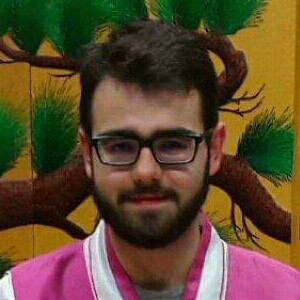
What grammar is there in sign languages?
Language: English
Some spoken languages are known to have complex morphological structures which can be quite a challenge for language learners. But what about sign languages? In the 1960s William Stokoe was the first scholar to claim that American Sign Language (ASL) is not just a bunch of signs randomly put together in chunks but rather a fully developed language with its own grammatical structure. Afterwards linguists in other parts of the world followed suit, contributing to a still growing field of linguistics called sign linguistics.
As a sign linguist myself, specializing in Polish Sign Language, I will be more than happy to tell you more about the grammatical features of various sign languages of the world. Ther may be no grammatical cases or complicated verb conjugations, but there are agreement verbs, classifiers and much more. Be sure to take part in the talk to find out more!
Rafał Darasz
Rafał is a linguist and a language enthusiast from Poland. He is currently a PhD student specializing in sign linguistics and a Baltic Philology student at the University of Warsaw but he also has a master’s degree in Sinology and Polish Sign Language Philology. He’s been interested in language learning and linguistics since middle school and has studied many different languages. One of his fields of interest is language comparison. He is also fond of music, especially singing, but he also plays a little bit of guitar and ukulele.

What is a Native Language?
Language: Spanish
As polyglots and multilingual people, we are very enthusiastic about all things language-related! But there are many assumptions and false stereotypes surrounding languages and language learning.
In this talk, I will bring into question many of the common beliefs about languages starting with one of the biggest stereotypes and over-generalisations – the idea of a “native speaker”. My aim is to challenge all the underlying assumptions we have about language that we may not even be aware of – from language levels to the idea of a “polyglot” and even what constitutes a language in itself.
This talk will make you doubt all that you know and love: the definition of a language, the role of a ‘polyglot’ and maybe even your own existence!
Dhananjay Talwar
Dhananjay Talwar, also known as DJ, is a huge language enthusiast from London, UK, though his family is originally Indian Punjabi. He has learnt over 20 languages to different levels, and is fluent in at least 9 of these (according to his own judgement). He is a regular at polyglot events and don’t worry, he appreciates any brave attempt to pronounce his full first name even if it’s not dead-on.
He is a private tutor and Director of a private tutoring agency. When not learning languages, he enjoys travelling, discovering foreign cultures and watching and playing a variety of sports.
Why learning the IPA can help you speak like a native
Language: English
Pronunciation can be tough to master, especially when it comes to non-phonemic languages such as English, French or Danish. In order to help learners of said languages, dictionaries oftentimes include the so-called IPA (International Phonetic Alphabet) next to the word entry. Most people would acknowledge that it helps a lot in the context of that specific word entry, but oftentimes the wouldn't dig deeper than that. I am here to show you the bigger picture of how the IPA can be beneficial for speaking more like a native beyond the context of a pronunciation guide for single word entries.
Lukas Ehrlich
Lukas Ehrlich is a passionate language-learner residing in Austria with a law degree. His main goal when delving into languages is to sound indistinguishable from native speakers of the target language.

Workshop interattivo: public speaking, pitching e comunicazione per Connessioni profonde
Language: Italian
In un mondo dove comunicare efficacemente apre le porte a infinite opportunità, questo workshop mira a migliorare la tua maniera di comunicare (e come ti senti comunicando!) per instaurare connessioni più profonde o migliorare il tuo public speaking & pitching.
Questo laboratorio, tenuto interamente in italiano è destinato a chi possiede un livello di competenza linguistica minimo di B2 (upper intermediate).
Utilizzeremo tecniche di teatro d’improvvisazione e giochi interattivi come strumenti potenti per abbattere le barriere comunicative, migliorare l’ascolto attivo e stimolare una comunicazione più autentica ed efficace.
Elisa Polese
Elisa Polese is not just a language teacher but a dedicated language coach, and author. Her passion for languages has led her to study over 25 languages, and she teaches 13 of them including Italian, German, English, Spanish, Russian, French, Dutch, Catalan, Portuguese, Greek, Hindi, Arabic, and Esperanto at various levels.
Elisa employs ICF techniques and “Smart Learning” strategies to help her students overcome language learning and mindset barriers, guiding them to achieve their linguistic goals within a very short time. Her lessons and workshops are designed not just to significantly improve language skills but enable students to begin speaking one or more languages from the very first day.
Elisa is renowned for her dynamic presentations and workshops about language learning, multilingual teaching & learning, intercultural communication, and her passion for life coaching applied to language learning.
She has lived and taught in the UK, Russia, Germany, Spain, France, Italy, and Switzerland. Elisa holds an MA in International Communication from the University of Modena and Reggio Emilia, Italy, and another in Didactics from the University of Siena and Perugia, Italy. She also has BAs in Translating and Interpreting from the University of Bologna, Italy, and the University of Grenoble, France. Furthermore, she holds the CELTA certification from the University of Cambridge.
Currently, Elisa is focused on language & life coaching, and on her language programs and courses that combine the best of her teaching method and heer experience on mindset in language learning.
Про дрова, корабли и чертят. Воркшоп по русским скороговоркам 2.0!
Language: Russian
Как насчет встретиться снова в этом году и дружно и весело освоить еще несколько русских скороговорок? Если вы хотите удивлять русскоязычных друзей вашим умением произносить скороговорки, ждем вас на воркшопе. Будет нескучно и полезно для вашего русского языка.
Ruslan Kokorin
Ruslan Kokorin was born and raised in Russia. From 1998 to 2015 he lived in the UK and Ireland and now lives in Cyprus. He runs an online language school for Russians who want to learn English. Ruslan is a language enthusiast who is on the quest to find the best way to learn languages.
中国书法:学习语言、文化之艺术 Chinese Calligraphy: The Art of Language and Culture Learning
Language: English
This hands-on workshop aims to engage the audience in the highest graphic form of Asian culture—calligraphy. It first offers a brief introduction to the history and essential principles of Chinese calligraph, and then a guided practice session follows. While the introduction helps the audience to appreciate the aesthetic and cultural significance of calligraphy as a form of Asian art and culture, the practice session provides the audience an opportunity to experience how calligraphy writing is closely bound with the forces of nature and the energies of the human body. Thus, rather than a rigid language practice drill, calligraphy writing can be enjoyed as creative art training.
With supplies of brushes and reusable writing cloth, the workshop is designed to provide each participant with an exciting learning experience. For language learners at different levels, the guided practice helps to reinforce the principle of stroke order, character structure, and brush stroke movement. It is a fun way to gain an understanding of Asian art and culture for the audience who doesn’t have knowledge of Chinese writing. Overall, the workshop demonstrates that in addition to a language learning tool, calligraphy is a key to understanding Asian language and culture, as well as a means of self-expression.
Lei Jin
Lei Jin is an associate professor at the College of Charleston, South Carolina, USA. Her teaching interests include Chinese language, Chinese classic literature and film, Chinese tea culture and history, to Asians in American Films. Her research interests range from Chinese literature to film.
